THURSDAY, JULY 31, 2025
Credit ‘bubble’ fear on consumer loan terms
By NEIL HARTNELL Tribune Business Editor
A SENIOR banker is warning against Bahamian commercial lenders sparking credit “bubbles” and increased delinquencies by issuing loans that fail to reflect the borrower’s true credit risk.
Gowon Bowe, Fidelity Bank (Bahamas), told Tribune Business it has witnessed a “significant variant” where rivals are issuing consumer loans at single digit interest ratesand with repayment terms extending out as long as some mortgages - in a bid to win business and generate credit portfolio expansion at a time when growth is muted.
However, he warned that loan maturities as long as 15 years, coupled with interest rates well below the 13-15 percent market norm, threaten to give Bahamian borrowers “a false sense of security”. The Fidelity chief warned this would make it difficult to further extend the loan repayment period if clients ran into difficulty, and questioned if such terms truly give Bahamians “financial independence”.
And, in an era where quality borrowers remain hard to find, Mr Bowe told this newspaper that commercial
banks face a choice between “higher risk” growth strategies that win market share but potentially undermine loan book quality or “a more stable and balanced approach” that avoids the risk of numerous delinquencies and defaults.
Mr Bowe, who told Fidelity Bank (Bahamas) shareholders in its justreleased 2024 annual report that the institution will not resort to “panic” over the “extraordinary actions” some of its rivals have taken to reignite loan book growth, said: “We are seeing much higher loan value amounts, a lot lower interest rates and longer terms.
NHI expansion will ‘fail’ if current woe not fixed now
By NEIL HARTNELL
Tribune Business Editor nhartnell@tribunemedia.net
NATIONAL Health Insurance (NHI) will “fail completely” if it expands patient numbers and benefits without “immediately fixing” current payment backlogs, the Opposition’s finance chief argued yesterday.
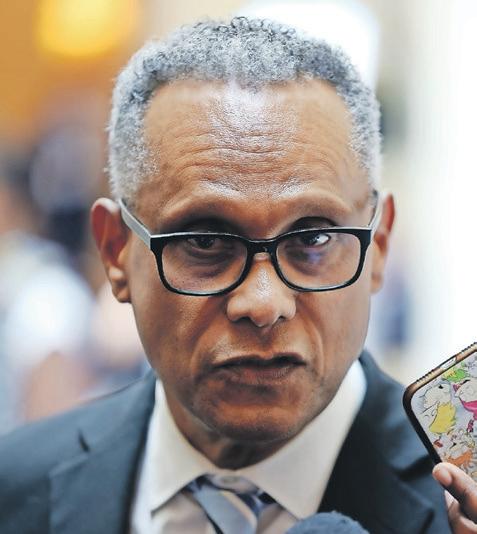
Kwasi Thompson, the east Grand Bahama MP, told Tribune Business that the Government-funded and managed healthcare scheme will find itself in an “unsustainable position” if it fails to provide extra financial, staffing and other resources to cope with the expected increase in demand given that it is already struggling to pay its bills.
Capo: $201m liability switch ‘masks’ Resorts World dump
By NEIL HARTNELL
RESORTS World Bimini’s original developer is alleging its Genting partner has converted an “illegitimate $201m liability” placed on the project’s books into a loan to “mask” its financial “misallocations”. Gerardo Capo’s RAV Bahamas, in its amended lawsuit that seeks to meet the south Florida federal court’s demands, unleashed new claims asserting the Malaysian conglomerate, which holds majority 78 percent ownership in the development, has engaged in financial engineering to cover up its previous “dumping” of liabilities incurred elsewhere in its global empire on the Bimini resort’s books. In particular, RAV Bahamas is claiming that costs previously allocated to BB Entertainment, Resorts World Bimini’s immediate parent, are now being “redirected” to BB Investment Holdings (BBIH). This is the entity that holds

“When we talk about unsecured lending, that’s generally associated with higher levels of risk and, in terms of the people being targeted, certainly single digit interest rates and unsecured loan terms extending out 15 years are certainly variant elements.
“When you look at the Central Bank, they typically do a periodic update in terms of what the average rates are. Consumer rates are normally between 13-15 percent; when you’re talking single digits that seems to be a significant variant from normal levels,” he added.

Major PI project with $150m sales focus of legal fight
By NEIL HARTNELL Tribune Business Editor nhartnell@tribunemedia.net
A PARADISE Island development said to have generated “over $150m” in pre-sales is the focal point of a furious legal battle that has erupted between its former and current development partners.
Roger Stein, who previously sought to redevelop New Providence’s South Ocean resort property, then made a bid to buy downtown Nassau’s British Colonial hotel around a decade ago, has launched a New York legal action alleging he was forced out of the multi-million dollar Ocean Club, Four Seasons Residences project that is currently under construction overlooking Cabbage Beach. His breach of contract claim, which is said to be seeking $35m in damages, asserts that Two Roads Development, the Florida-based firm that is the project’s current development
partner, is exploiting the proprietary and confidential information assembled by his company, Soho Development, to its financial benefit by using it for the development with zero compensation paid to himself.
Two Roads, in a statement to Tribune Business, sought to portray the lawsuit by Mr Stein and Soho Development as “nothing more than a transparent money grab” and pledged to “aggressively defend” itself in the New York State Supreme Court. Blasting the claim as “baseless”, and asserting that it has always acted with “integrity, it signalled it would seek damages for any impact to the project.
“This lawsuit is entirely without merit and represents nothing more than a transparent money grab. Two Roads Development has acted with integrity throughout the course of its involvement in The Bahamas project,” a Two Roads spokesperson said.


AVOID MISCONCEPTIONS ABOUT ENTREPRENEURSHIP
We have all dreamed about starting our own business at least once.
Yet doing so is often surrounded by misconceptions that can take aspiring entrepreneurs down the wrong path when it comes to the realities of entrepreneurship. Some of these are: Success requires having all the answers
Most entrepreneurs do not have all the answers, but what they do have is a vision. One that is used to drive their commitment to create a team that supports their ideas and, ultimately, achieve that vision.
Having money guarantees success
While funding provides resources, it is ultimately = execution that determines the outcome. Building a successful business requires a laser-like focus on customer acquisition, plus a proven ability to consistently deliver value to the market.
You do not need a business plan
In reality, a well thoughtout business plan helps visualise goals, strategies and financial projections, ultimately guiding your business decisions and attracting potential investors.
Entrepreneurship equals freedom
Many believe that entrepreneurship offers complete freedom regarding work hours and decisions. However, entrepreneurs often find themselves working longer hours and facing numerous responsibilities, including managing clients, employees and finances.
You must start big
There is a common belief that successful businesses require significant initial investment. In truth, many entrepreneurs start small, often working from home, and gradually scaling their operations as they learn and grow. For example, as many
know, Jeff Bezos started Amazon in a garage. Many others started from almost nothing, but achieved a more-than favourable outcome.
All ideas will work out
The reality is that many ideas fail, and learning from these failures is a crucial part of the entrepreneurial journey. In fact, failure can provide valuable lessons and insights that contribute to future success. Many successful entrepreneurs view failure as a stepping stone rather than an end-point. The story of Bill Gates is a bit more complex than the entrepreneurial legend, as he dropped out of Harvard and began selling software

programs. Thereafter, he applied for a leave of absence and, after his initial success, focused on his business.
You must have all the answers before starting
This is totally incorrect.
Most entrepreneurs learn as they go, adapting their strategies based on experience and feedback.
There is no business without a unique idea
There are thousands of businesses in the world with the same concept, but it is their marketing strategy, user experience and how they communicate their product that makes them stand out.
Entrepreneurs should always trust their gut
There is nothing wrong with following your instinct. However, the reality is far more complex. It is fundamental to listen to clients and value constructive feedback. There is always a way of improving and, sometimes, what we may perceive as genius ideas are not that brilliant.
Hiring experienced talent will solve everything
A big misconception that rarely works in the real world. You must understand the key aspects of your business, otherwise you risk being misled or losing control over critical processes. Successful entrepreneurs remain ‘hands-on’ to ensure their team’s work aligns with the company’s vision.

By
Real entrepreneurs never quit
The myth that successful entrepreneurs never quit can be misleading. Many successful individuals have pivoted or left ventures that were not working, allowing them to pursue new opportunities and ideas.
By understanding these misconceptions, aspiring entrepreneurs can better prepare themselves for the challenges and realities of embracing the truth about entrepreneurship, which can lead to more informed decisions and, ultimately, greater success. Until we meet again, live life for memories rather than regrets. Enjoy life and stay on top of your game.
welcomes feedback at deebastian21@gmail.com
graphic designer/brand marketing analyst, international award-winning author and certified life coach.


60-DAY TARGET TO LAUNCH MEDICAL CANNABIS BODY
By FAY SIMMONS
Attorney General Ryan Pinder said he aims to have the medical cannabis authority launched within 60 days.
Speaking to reporters yesterday, Mr Pinder, while acknowledging there have been “some delays” in implementing the framework for medicinal cannabis work is being
done to launch the cannabis authority and the electronic platform within the next two months.
“I would really like to see that within 60 days, we have a fully operational authority with the technological platform in place, that we can start at least receiving applications. That’s my timeline,” said Mr Pinder. “I believe you speak it into existence. And so you set goals for yourself, and you try to accomplish those. You don’t always reach them, but you but
AG CONFIDENT OVER TASKFORCE ASSESSMENT
By FAY SIMMONS Tribune Business Reporter
ATTORNEY General
Ryan Pinder said the Davis administration is “pretty confident” ahead of the country’s Financial Action Task Force (FATF) mutual evaluation.
Speaking to reporters yesterday, Mr Pinder said much of the financial compendium of bills passed by Parliament this year were to ensure the country is aligned with international standards and can maintain its stellar standing with the international compliance watchdog.
Mr Pinder said The Bahamas has to maintain its status to ensure the “integrity” of our financial service sector and with the new legislative amendments now passed preparations are being made for the fifth round of mutual evaluations.
“We needed to pass some amendments to some laws to keep up with international regulatory standards. Next year, we’re going into our fifth-round mutual evaluation. That’s our FATF review for anti-money laundering. Remember, we’re 40/40 in the recommendations,” said Mr Pinder.
“We’re one of seven countries in the world. We’re one of now three countries in this hemisphere. We were the second in this hemisphere to accomplish it when we did. We need to maintain that status for the integrity of our industry. Some of those amendments were to make the make the laws consistent with new changes and guidance, and those are now in place, and we look to prepare for our fifth round of mutual evaluation. We feel pretty confident in the country’s position on that.”
Mr Pinder said the legislation changes also allowed the country to remain
“innovative” through new product development and expanded offerings.
“What we do is twofold. We don’t, we don’t only look at regulation. Yes, regulation is important, but you must continue to be innovative in product offerings. The financial services industry changes quickly. It changes based upon domestic law reform,” said Mr Pinder.
“We see changes in Brazil, and their tax code, we see changes in the United Kingdom, and their tax code and we think we can get some businesses. As a result, but we have to be nimble and we have to be innovative in our legislative process, and our product development, to do so”
Noting that some of the legislation was not amended in over a decade, Mr Pinder said many of the changes came after consultation with the industry to ensure it is able to provide flexible products to all clients.
“We want to be regulatory compliant, but we also want to be innovative to attract new business. We passed some amendments to the Trustee Act to allow for the administration of trusts to be ahead of the best practices. We’re very strong trust jurisdiction. We just passed a Segregated Account Company Act in the House of Assembly that’s to come to the Senate that’s to modify one of our products to be a little bit more innovative, a little bit more flexible,” said Mr Pinder.
“It hasn’t been amended for, I think, 12 years or so, and so we felt it was time to do that. We’ve had some industry commentary come to us saying, if we made certain amendments, we think that more business would come and we like to be responsive to the industry, so we passed a segregated accounts Company Act to do that.”
you need to set a goal to work towards, and that’s my goal.”
He said the industry will use an electronic “seed to sale” tracking system that will track the product from growth or import straight to distribution
“We’re not quite at the timelines that I wanted to be at, but I can say we’ve decided on the fully integrated platform. Now it’s a seed to sale tracking system for the cannabis authority, which means that at every stage of the processing,
from importation or growing straight to distribution, the tracking systems in place,” said Mr Pinder
An e-prescription platform has also been developed, along with a point-of-sale platform for licensees that will be integrated with the necessary compliance framework.
“Not only is that in place, they’re also providing an e-prescription platform. So, we’ve now secured the e-prescription platform so all the prescriptions can be done electronically for the
Up to 60 jobs from $52m San Salvador road project
By FAY SIMMONS Tribune Business Reporter jsimmons@tribunemedia.net
THE Davis administration has signed a public-private partnership (PPP) with GDA Paving Construction for $52.6m of roadworks and renovations to the government marina - with the Prime Minister saying the initiative aims to boost safety, economic opportunities, and empower the community.
The project will include 40 miles of roadway, the construction of new sidewalks and the expansion of the government marina in a project expected to last 18 months.
“Under the leadership of Gerard Nairn and Kevin Williams – both proud sons of San Salvador – along with Charles Sealy II, we will see 40 miles of roadways receive asphalt paving. For the first time in this island’s history, you will have roads built to last, not just patched to survive,” said Mr Davis.
“We’re also delivering new sidewalks for pedestrian safety, extending from Club Med through town and north to the clinic, so our children and elders can walk safely along busy routes.”
He said the marina will be “completely transformed” through dredging and expanding the entrance so it can accommodate larger vessels.
“The government marina will be completely transformed – dredged, widened,

medical cannabis,” said Mr Pinder
“And we’ve also developed a platform for actual point of sale, so the retailers who are selling to the ultimate customers must use the point of sale that we’re going to designate and have it completely integrated along with the compliance frameworks for the licensees. So those were the most important technical components.”
Mr Pinder said a staffing plan has also been prepared and the Cannabis Authority
is now is a “much better position” ahead of the launch.
“We have a full staffing plan prepared now how we would build out the cannabis authority, given that it’s an electronic kind of framework. And so all of that’s in place now, and so I think the authority is going to be in a much better position now to actually launch and roll out,” said Mr Pinder.
and equipped to safely accommodate vessels at any tide, in any weather. No more watching the mailboat struggle. No more limited access that cuts this island off from reliable supply and transport,” said Mr Davis.
He said many of the workers will be residents of San Salvador allowing them to actively participate and have a direct economic impact from the project.
“With over 95 percent of the workforce being Bahamian – and many from right in San Salvador – this project puts our people at the centre of progress. Between 40 and 60 jobs will be created, ensuring that San Salvadorians lead the way in their island’s transformation.”
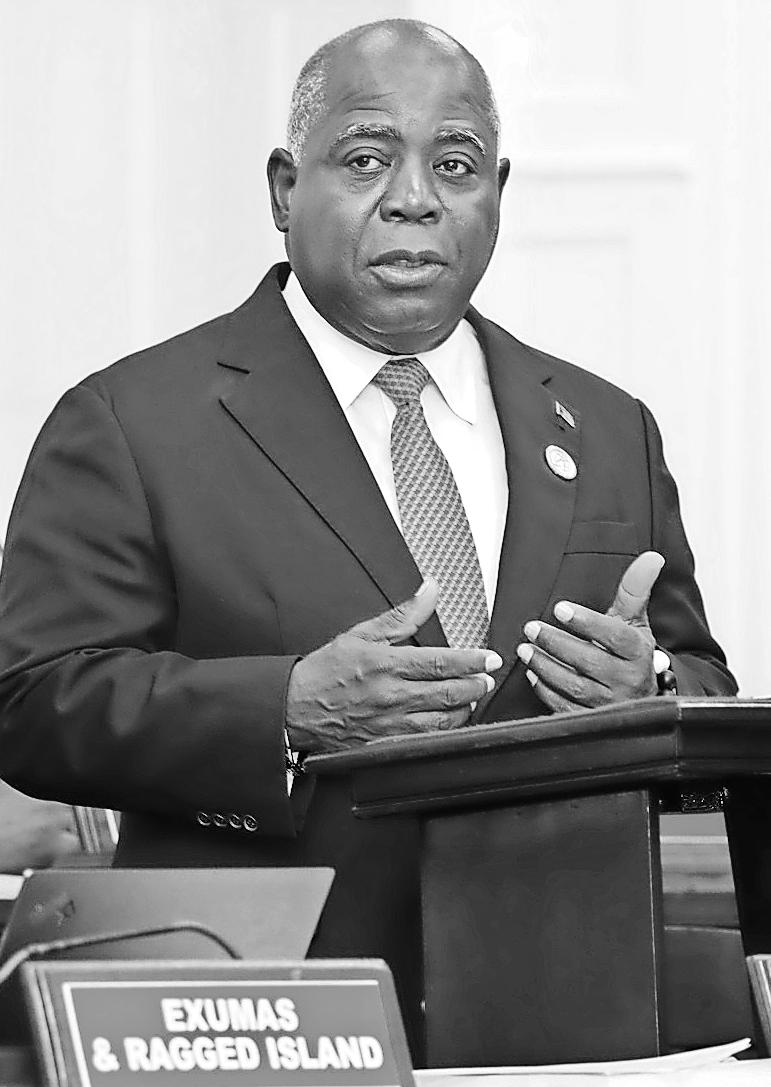
OFFICE CLOSURE

Dear Valued Clients,
We wish to advise that our Chambers will be Closed on Friday, August 1st, 2025 for our Annual Staff Funday and Monday, August 4th, 2025 which is being observed as a Public Holiday in the Bahamas.
Our regular business hours resumes Tuesday August 5th, 2025 at 9:00am.
Sorry for any inconvenience caused.
Signed: BowePartners & Associates Management

Notice is hereby given that the individuals / entities shown below are asked to contact the Joint O9icial Liquidations of VIBL, in respect of property situated in Bahama Terrace Yacht & Country Club Subdivision URGENTLY at:
Second Floor, Siboney Commercial Centre, P.O. Box, F-40025, Freeport, Bahamas, Tel: 393-2007 / 352-9384, Email: bsfmvibl@kpmg.com.bs
C.K. Properties Limited Carl Milton Delavon Armbrister
Mo ey
Tee Company Limited Keino Curry
Keshila Milton
Knowles Marine Yacht Services Ltd
Lenora Curry
Richardette Brown
$100k expansion for media group thanks to digital service link-up
BY ANNELIA NIXON Tribune Business Reporter anixon@tribunemedia.net
LIFESTYLES Digital
Media Group is undergoing an expansion worth $100,000 - the move coming through CheckCee vendors and facilitated by the Bahamas Chamber of Commerce and Employers’ Confederation (BCCEC).
CheckCee, a Bahamian platform aimed at connecting homeowners with vetted service providers in the construction industry, has played a vital role in linking Lifestyles Digital Media Group, a film and production company with service providers to aid in the expansion of the company’s facilities. Referring to the partnerships as “operation collaboration”, CheckCee has connected the media group with numerous businesses including Fraser’s plumbing, Integrity Roofing and Construction LTD, AG Electric, the Paint
Place, Foam It Bahamas and Xoana Millwork.
Lifestyles Digital Media Group’s founder and chief executive, Ethan Quant, said operation collaboration’s inspiration stemmed from BCCEC CEO Dr Leo Rolle and his rebranding of the chamber. He said Dr Rolle connected he and CheckCee’s founder and CEO Candice Knowles. He said the goal was to have 100 percent of the cost of the expansion covered through a barter system adding: “We have a stigma in the market, in The Bahamas, that companies, Bahamians, can’t work together.” He said he was curious “to see if this thing could work”.
“Operation collaboration is really a programme, for lack of a better term, that was launched for the build out and expansion of the studio of Lifestyles Digital Media Group, which is studio 124 located in AIP,” Mr Quant said. “And how that’s been working is, the first collaboration was between CheckCee and
Lifestyles based on operation collaboration. “CheckCee came on to serve, really, in the capacity that they serve their clients now, which is to put service providers with clients. So all of the vendors who are completing the work, so the electrician, the plumber, the carpenter, the painter, foam sprayer, all of them are coming through CheckCee and CheckCee is actually the project manager. So all of them are coming through CheckCee, through the CheckCee platform. What’s happening is, is that the vendors are providing invoices for services rendered in exchange for our services as Lifestyles Digital Media Group. And so that number of the exchange of services is valued just at around $100,000 to date.” He added: “And so this isn’t just about Lifestyles or CheckCee or even the chamber. This is really about putting Bahamian businesses, small businesses, who may not have access and resources, in touch
and giving them access and resources, but then also showing that together we are stronger. And so that $100,000 that isn’t a dollar exchange. That is, you do this for me. I do this for you. And so we’re all better as a result of that. It’s a true barter, true collaborative effort.”
Dr Rolle added that BCCEC supports digital transformation across all sectors and their digital transformation committee, led by board member Royann Dean, serves as an avenue to help businesses enhance their digital footprint.
“People say you want to become digital, but you take a PDF document and you put it online and say, print it out, fill it out. That’s not becoming digital,” Dr Rolle added. “Really digitising your products and services means that people can shop from the comfort of their bed anywhere in the world. And so by allowing businesses to really get their their feet wet and their foot
in the door with digitisation is one of the things that we champion through members, but also through our own digital transformation committee and members like CheckCee and of course, Lifestyles Digital Media that’s been helping us not only to enhance brand imaging, but also looking at e-commerce platform, looking at commercials, where people can now see where these businesses are located, who the owners are, looking at the story behind it, the brand footprint. And so all of these things are important when you’re thinking about digitising your business beyond our simple geographic confines of The Bahamas.”
Ms Knowles yesterday announced the launch of CheckCee’s website and app, and noted that the company started off with 12 to 15 vendors and are expanding to the Family Islands, specifically Eleuthera and Grand Bahama, with one Grand Bahamian already having been onboarded. She
‘EXTENSIVE CONSULTATION HELD’ ON HEALTH BILL COMPENDIUM
BY ANNELIA NIXON Tribune Business
CONSULTATION from both public and private sources has been sought on a compendium of health legislation by Minister of Health and Wellness Dr Michael Darville.
The compendium - consisting of the National Health Insurance Bill 2025, the National Health Insurance Chronic Disease Prescription Drug Fund Bill 2025, the Health Promotion and Wellness Bill 2025, the Dental Professional Bill 2025 and the Pharmacy Amendment Bill 2025 - is, according to Dr Darville, “ideal for our archipelago, where the logistics and navigation and land and sea demand is absolutely a challenge, which required well-regulated health care, services and policies”.
The National Health Insurance Bill 2025 allows for primary care, maternal
and pediatric services, diagnostics and lab, health education and promotion, screening programmes for cancer and other specified conditions for Bahamians throughout The Bahamas with no payment due at point of service. The bill also “designates the National Health Insurance Authority’s functions and powers as the primary funder for public and private care, aligning incentives so that money follows the patient”. With the National Health Insurance Bill 2025, prescription drug coverage and selective catastrophic care will be expanded and enrollment, claims processing, and payment to providers in a timely manner will be unified, “reducing paperwork by an estimated 40 percent cutting claims turnaround in half”.
“Since the establishment of NHI in 2016, over 161,000 Bahamians have enrolled nationwide, with 17,000 in the Family Islands and just over 27,000 in Grand
Bahama all who are receiving free primary health care services by a family doctor of their choice,” Dr Darville said. “Patient satisfaction for NHI stands above 90 percent and public support for this programme is bursting through the seams at 95 percent and growing.”
Dr Darville said the Bahamas Insurance Association “is satisfied with the consultation process and the adjustments that have made to the new bill that is laid in Parliament” as the bill received extensive consultation.
“This bill, Madam Speaker, is the result of extensive consultation,” Dr Darville said. “I want to say it again, extensive consultation, and we have adjusted what we propose to the relevant sector, and modify the model to what you have seen in the bill as presented today. Since 2022, we have held formal discussions with public and private key stakeholders, including, but not

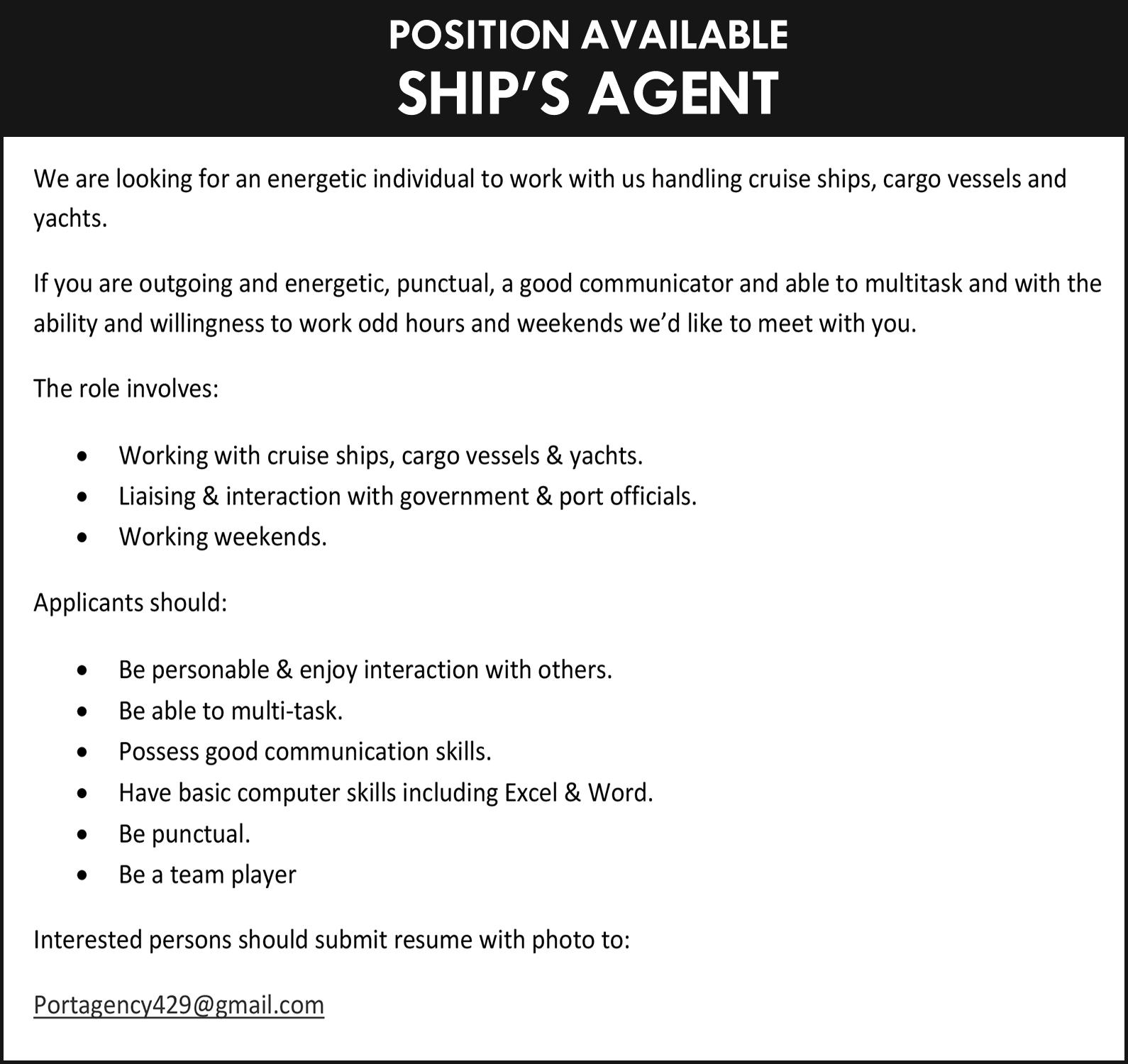
limited to the Medical Association of The Bahamas, The Bahamas Insurance Association and the Insurance Commission of the Bahamas and the general public at large. Key points of emphasis from the consultation sessions include the importance of explaining expected revenues to physicians, greater clarity in the type of insurance plans impacted, and the need to continue to ensure that the programme is designed to be accessible and affordable for all Bahamians. The national health insurance bill 2025 addresses gaps in the past and places the health of the Bahamian people at the centre of our policy.”
Under the National Health Insurance Chronic Disease Prescription Drug Fund Bill 2025, which currently serves about 41,000 Bahamians, the NIB drug prescription plan will be integrated into the National Health Insurance Authority.
“We are pleased to report that in depth consultation with the industry was done prior to the laying of this bill, and much of the feedback is incorporated in this piece of legislation before the House today,” Dr Darville added.
“Madam Speaker, the transition of drug treatment for chronic non-communicable diseases from NIB to NHI makes sense, because it finally completes the model of care provided by NHI and moving closer to universal healthcare coverage and a one stop shop where consultation, lab, diagnostic and treatments are available. Again, the consultation process with providers, insurers, pharmacies. The Bahamas Pharmacy Association and
council and other related bodies have had the opportunity to review the bill and incorporate many of their recommendations in this legislation.
“Madam Speaker, that bill is substantial and it has a variety of different clauses. The mechanics of the bill are straightforward, easy to read, easy easy to understand. And if there’s any questions as it relates to many of the clauses, I will be willing to speak specifically to them, but to assure the Bahamian people that there has been both private as well as public participation and many of those affected from this piece of legislation have given solid input, and now we feel that we are ready to move.”
In an attempt to promote prevention vs treatment, Dr Darville has also introduced the Health Promotion and Wellness Bill 2025. He said he hosted a youth forum last week to discuss and determine how to improve healthy habits within the communities.
“Last week, my ministry hosted a youth forum that brought together public and private stakeholders along with our young people to discuss how we can improve health environments in our schools, in our homes and in our communities,” Dr Darville said. “The meeting was successful and solidified the fact that a multi ministerial approach is not only cost effective, [but] will prove to be transformative.”
Noting that the Dental Association approached the Ministry of Health regarding “rotten apples” and “individuals who are doing procedures who are
said her “clients and vendors alike feel very empowered and trust in the platform, as well as the vetting process” adding that her team conducts in-depth verification processes.
“We’ve been in operation for a while, but we decided to streamline and create a website and an app, which I am pleased to announce is officially launched,” Ms Knowles said. “So clients have the comfort knowing that our vendors are vetted. And each vendor is required to have their business license, any requisite certifications, they must also have professional references confirmed as well, and of course, an indication of their previous work and so much more, public liability insurance, general contractors insurance and the like. It’s been an amazing opportunity and ride, to say the least, but it’s definitely been something worthwhile.”
not qualified”, Dr Darville spoke of the Dental Professional Bill 2025 which “has been vetted by the industry and providers for licensing and registration of all dental practitioners under unified international regulatory standards.”
“This progressive bill was shared widely in the dental community and widely accepted in its current form that you see here today in this honourable house,” Dr Darville added. “I would like to take this opportunity to thank the Dental Council, the former director of oral health, Dr Mitchell Lockhar for their inputs into this important bill.”
He added of the Pharmacy Amendment Bill 2025: “This bill seeks to make a simple yet progressive amendment to update the law to recognise modern prescription practices in the country and to make sure we meet global standards. Through electronically transmitted prescription via secure, authenticated e-prescription system, doctors and pharmacists can now treat patients via secure digital platforms.
“We see this in the United States with controlled substances. We see it in Europe and now The Bahamas must follow suit to be able to have e-prescriptions. These changes keep pace with global best practices, enhance patient safety by reducing transcription errors and enable pharmacies to verify orders in real time.
“This bill seeks to integrate what we’re doing with our new NHIA digital platform, and by extension, the Cannabis Act 2024 database ensuring compliance, patient confidentiality and safety. These amendments are especially important as we expand telemedicine and modernise hospital systems by way of e-clinical records.”
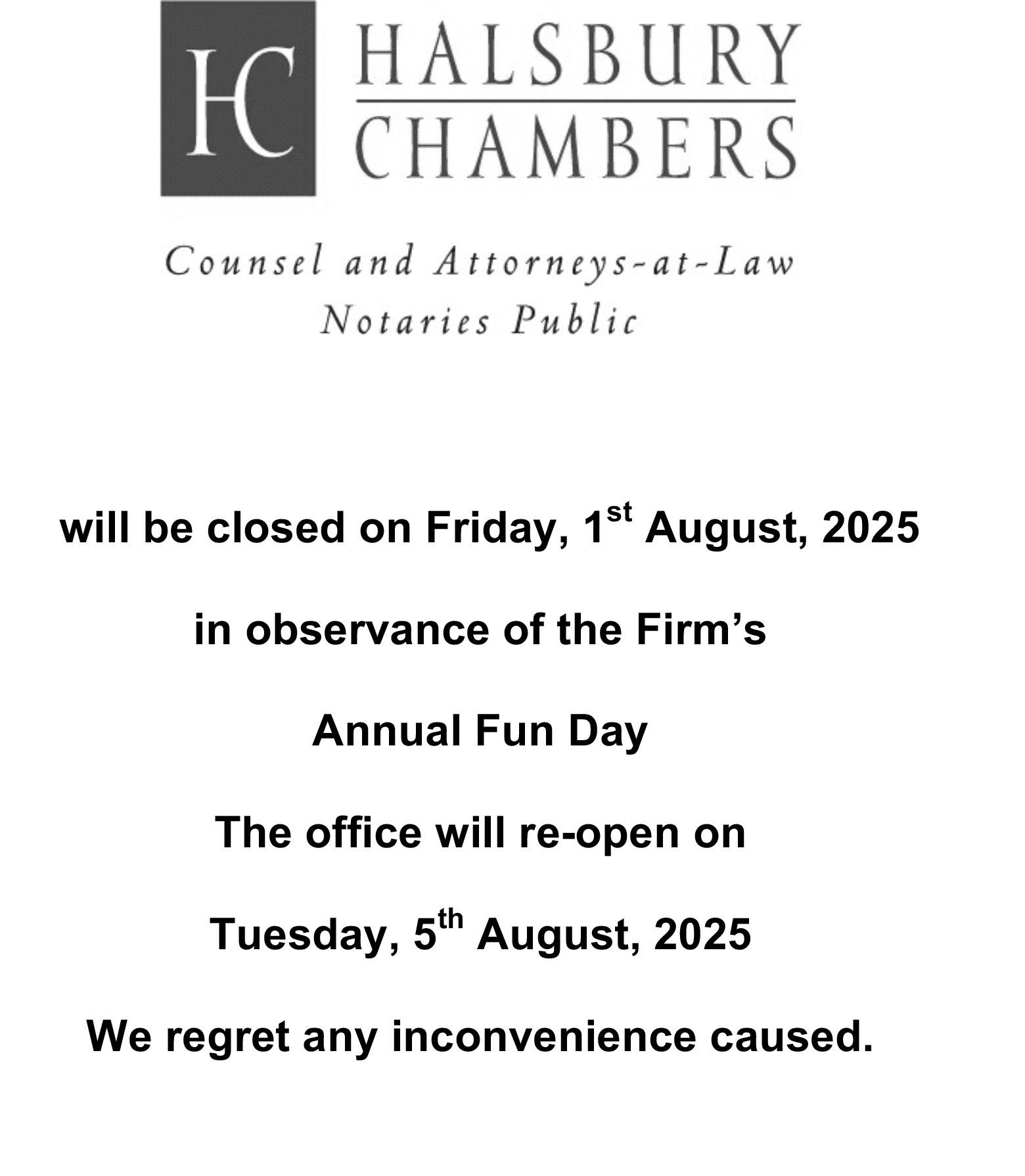
‘New registrar portal will cut delays and ease frustration’
By FAY SIMMONS Tribune Business Reporter
ATTORNEY General
Ryan Pinder said the launching of the Civil Registry Operation System (CROS), a secure, user-friendly online portal for document submissions to the registrar, will mark a “significant improvement” in the way documents are processed.
Speaking at the launch yesterday, Mr Pinder said
CROS will reduce public frustration with delays in vital records like births and property transactions and facilitate online document access and authentication, including births, deaths, and land registrations.
“The first phase of CROS will allow agents and individual users to conveniently file their documents online using a credit or debit card.
For professional firms, an escrow account option is available to streamline services. Those professional
firms that utilise CARS, It’s a similar escrow platform that we’ll be using,” said Mr Pinder.
“The ability to submit and pay for documents online eliminates the need for in person visits to the registrar records department, significantly alleviating frustrations such as parking issues while making the service available 24/7.”
He said future plans for the system include integrating it with the new land registry as well as hospitals
and funeral homes for digi-
tal registrations.
“The ability to be able to obtain certified copies of documents online, and be able to have them authenticated without having to go downtown to go into the Registrar General’s department. Mothers with young children, not having to go and line up and queue up in the hot sun.” said Mr Pinder.
“These are all things that we want to be in the past and these aren’t things that we want to ever see again. This
is, with respect to actually engaging with the government on vital records for the general population, is going to be a significant improvement in how we do business. Its going to make the lives of Bahamians, I think, much better, less frustrating.”
Mr Pinder said CARS Business will introduce new features that will be useful to high-volume agents and complex portfolios including enhanced business intelligence reporting and task-based workflows for
EX-PM RENEWS HOSPITAL CHINESE LABOUR CONCERN
By FAY SIMMONS Tribune Business Reporter jsimmons@tribunemedia.net
A FORMER prime minister yesterday raised renewed concerns over the number of Chinese workers that will be hired to construct New Providence’s $267m specialty hospital.
Dr Hubert Minnis questioned why the Government has not confirmed or revealed the numbers given that it is common practice worldwide for Chinese
contractors and workers to be engaged on projects financed by Beijing’s debt capital. The China ExportImport Bank, a Chinese state-owned institution and Baha Mar’s financier, is the main source of hospital financing.
Dr Michael Darville, minister of health and wellness, previously said labour negotiations were continuing, but the workforce split is currently at 50 percent Chinese workers and 50 percent Bahamian. However, Dr Minnis yesterday
questioned why these discussions have not been concluded so far into the financing deal.
“One of my major concerns is the large number of Chinese workers that come with Chinese loans, with Chinese projects. China gets the general contractor and the labour. At the contract signing, the minister of health did not say how many Chinese workers are coming to The Bahamas as a result of this deal, even as many Bahamians still need jobs,” said Dr Minnis.
Tourism executives meet DPM on industry issues
SENIOR tourism executives have met with the Deputy Prime Minister and senior Ministry of Tourism officials to address issues impacting the industry’s performance.
Jackson Weech, the Bahamas Hotel and Tourism Association (BHTA) president, speaking on its behalf and that of other executive committee members present, acknowledged the efforts and achievements of initiatives that have recently been undertaken by the Government of The Bahamas.
He singled out the formation of the Joint Task Force Enforcement Unit (JTFEU), comprised of multiple government agencies and private sector partners, whose mandate is to address long-standing issues with rogue jet ski operators. It has also been tasked to strengthen and support the regulatory environment, including training and enforcement of jet ski and watercraft operators in The Bahamas.
Mr Weech, alongside his immediate predecessor,
Robert Sands, and current senior vice-president, Emmanuel ‘Manny’ Alexiou, also recognised the downtown Nassau improvement initiative. This is led and supported by the Ministry of Tourism and the Tourism Development Corporation (TDC), and involves daily cleaning of downtown sidewalks and streets, and tackling infrastructure issues and derelict buildings.
It was acknowledged that both initiatives served to address long-standing ills that cannot be solved “overnight”, and which require constant engagement and collaborative efforts between public and private sector stakeholders to achieve common goals. The meeting also focused on efforts to “widen the financial net” and ensure tourism participants who benefit from The Bahamas contribute fairly to the Public Treasury, thereby supporting efforts to maintain, promote and enhance the Bahamian “product”. The BHTA executives reiterated the need for all

On Saturday, August 2, 2025, Temple Christian School will hold its Entrance Examination for students entering grades 7, 8, 9 and 10.
TIME: 8:30 a.m. to 12:00 p.m.
LOCATION:
High School Campus, Shirley Street
Application forms are available at the High School Office and should be completed and returned to the school by Friday, August 1, 2025. The application fee is twenty-five dollars ($25).
For further information, please call telephone number: 394-4481/394-4484.
sectors of government to communicate and collaborate when contemplating legislative changes, and/or determining and deploying policies that impact the tourism industry and economy. This included the changes that have impacted Bahamian-owned and operated marinas who depend on boating business to sustain their operations.
Officials attending the meeting included Lisa Adderley-Anderson, permanent secretary at the Ministry of Tourism, Investments and Aviation, and Latia Duncombe, its director-general.
“The Chinese are very detailed, and they are very thorough in their analysis of the projects they enter into. They analyse. By now, they would know how many Chinese workers they will use on this project. Why is it that, at this late stage, when deals are being signed the Bahamian people cannot be informed of how many Chinese workers are part of the PLP’s Hospital project?
“Is it 500? I don’t know. Is it 1,000? I don’t know. Is it 1,500? I don’t know. Maybe more, maybe less. I don’t
know. But contracts are usually not signed unless these things are worked out.”
Dr Minnis said it is “unfortunate” that foreign workers will be brought in to conduct capital works when young Bahamians are seeking employment, and questioned if the Government will be left responsible to pay local workers while Chinese workers are paid via the loan facility. “It is unfortunate that so many foreign workers will come into the country for
group fillings and document processing.
He said the platform was designed with feedback from the industry and will assist small firms with a management platform and allow multinational agencies to upload required data seamlessly.
“The platform was designed with direct input from industry to ensure it meets the needs of both large firms and small operators. CARS Business will help small firms with a CARS integrated company management platform, and will allow larger multinational agents to manage workflow between their international group, manage entities in bulk and be able to monitor and enhance their internal operations,” said Mr Pinder.
a public works project at a time when we, as a country, have a youth unemployment rate that is around 20 percent. Our young people need jobs,” said Dr Minnis. “Bahamian public works projects are supposed to create work for Bahamians and not others. Based on how the Chinese operate, many wonder whether the Government will have to hire Bahamian workers for this project out of the second set of money they will borrow, possibly at a much higher interest rate. I don’t know. The Chinese loan component likely will


‘Bureaucratic nightmare’ fears over health system
MEDICAL - from page B1
Noting the constant complaints from doctors, and other healthcare providers, that NHI has not been paying them in full or on time for months, he voiced concern that “chaos” will erupt if the Government does not rapidly address what he branded as “a structural failure waiting to happen”.
Although the Opposition supported the NHI Bill and other healthcare legislation that was debated in the House of Assembly, Mr Thompson told this newspaper its concerns focus on whether the Government can properly execute and implement the reforms that will be enshrined in law.
And, spotting that the Bill paves the way for the Government to finance NHI through taxation, or some form of levy, on Bahamian employers and self-employed persons, he challenged Dr Michael Darville, minister of health and wellness, to identify “what other sources” of funding may be used and when this will happen.
The minister, in leading-off debate on the five healthcare Bills, made no mention of any move to tap financing sources outside the Public Treasury. However, the NHI Bill’s section 15 provides for the NHI Authority, the body that governs the plan, to use “monies payable by an employer of an insured person, or monies or allowances payable by
a self-employed person for standard health benefits or other health benefits under this Act”.
Instead, Dr Darville asserted that NHI is “bursting at the seams” in a different way - the Bahamian public’s support for the scheme, which he placed at 95 percent. He added that “patient satisfaction” with the quality of care and treatment currently stands at 90 percent, and reiterated: “The Bahamian people want NHI.”
The Bill, which introduces the standard health benefit (SHB) as the minimum care and benefits package available to Bahamians, also sets out the NHI Authority’s functions and powers “as the primary funder for private and public care with financial incentives so that money follows the patient”.
“The Bill creates a clear governance structure and funding streams to ensure transparency, fiscal responsibility and long-term sustainability,” Dr Darville said. “This Bill expands the provider network so that Bahamians on the Family Islands can accept, and have access to, this standard basic package; not only those on New Providence and Grand Bahama, but those across the archipelago.
“The Bill also allows for the expansion in prescription drug coverage and select critical care, such as dialysis and cancer care.”
Dr Darville, seemingly addressing the payment concerns of doctors and
other NHI providers, said the legislative reforms will cut the claims processing time by 50 percent and “reduce paperwork” by 40 percent.
“The Bill unifies enrollment, claims processing, the timely payment of providers, reduces paperwork by an estimated 40 percent and cutting claims turnaround in half.” Some 161,000 Bahamians, or 40 percent of a 400,000-strong population, have already enrolled with NHI. That number includes 17,000 in the Family Islands, and 27,000 on Grand Bahama.
Dr Darville, hinting that these numbers are set to further expand, said the scheme has allowed Bahamians to see a primary care doctor of their choice at no cost and without having to pay a point-of-service fee. He added that the latest reforms seek to address “real life challenges” that result in many Bahamians delaying, or avoiding, vital treatments because they cannot meet the cost.
Mr Thompson, though, warned that a “bureaucratic tsunami that could bury the very people we are trying to help” may result if the Government expands NHI care and treatments, and patient demand surges, without addressing the public healthcare system’s existing staff shortages, lack of resources and other inefficiencies.
Telling Tribune Business that expanding NHI without addressing its existing struggles is “the huge
challenge”, Mr Thompson also pointed to the legislation paving the way for the scheme to source additional funding beyond the $48m provided by the Public Treasury in the 2025-2026 Budget.
“That is also one of the aspects of the Bill that speaks to being able to fund it from outside sources,” the east Grand Bahama MP said. “The Government has to be clear when that is supposed to take place. Dr Darville did not make mention of what those other sources are and when those sources will take effect.
“In the Bill itself, it does have provision for where they [the Authority] can receive funds from outside the Fund.. The Bill speaks to additional sources. The minister did not say when that will become active, when that becomes effective. The minister is going to have to speak to that and be clear with the Bahamian people at what time, and what additional sources of funding, will be.”
Taxation, or some form of levy, imposed on employers and working Bahamians to finance NHI is far from a new idea. Who pays, and how much, have always been key issues ever since the scheme was first conceived by the initial Christie administration in the early 2000s. However, both employers and the selfemployed are unlikely to welcome any new and/or increased taxes - especially at this time.
Mr Thompson, meanwhile, questioned the wisdom of expanding NHI when it is presently struggling to pay its bills. Doctors who treat the scheme’s patients last week told Tribune Business they have received payment for
maturity period,” Mr Bowe continued.
services rendered in June, but have yet to receive what they are due for July.
“A point we have raised is doctors, nurses and healthcare professionals are not being paid on time, so they are already struggling to pay the doctors on time,” he added. “We are concerned that, if they are having difficulty paying provider on time now, and funding NHI now, with the additional benefits and providers we are very concerned .
“They must fix the system immediately to ensure doctors and nurses are paid on time. They are the engine behind NHI and, if we cannot ensure they are paid on time, the entire system will fail. We are advised by a number of doctors that are a part of the NHI system that this is a real problem. They need the funding to be sustainable.
“With the additional benefits, doctors will be more active in the NHI system, and doctors not currently active will become active.
Some doctors will become de facto public servants because of their reliance on NHI. It must be fixed, and fixed immediately. It is not a sustainable position. The Government must address that immediately,” Mr Thompson said.
“In terms of the existing system and existing benefits, we must ensure that the doctors are paid on time. They are the engine behind NHI and must be paid on time. If they are not paid on time the entire system is threatened.”
Mr Thompson, in his earlier House of Assembly presentation, also urged the Government to strengthen the overall public healthcare system before expanding NHI. “We
cannot ignore the looming threat that lies beneath the promises of this Bill; a bureaucratic tsunami that could bury the very people we are trying to help.
“Let us be honest: Our public health system already struggles under the weight of under-staffing, inefficiency and delay. Patients today, even with private insurance, often face agonising waits for preapproval - sometimes days, even weeks - for a test or essential treatment.
“Now imagine adding over 100,000 beneficiaries, many seeking new services that may also require pre-authorisation and case management. Without urgent and deliberate preparation, we are inviting chaos. Are we sleepwalking into a bureaucratic nightmare? The Government must not simply hope for the best; it must be ready with expanded staffing, upgraded systems and bold administrative reform.”
And, returning to NHI’s existing payment issues, Mr Thompson added: “What will happen when this system is suddenly expanded to cover new services, new patients and new providers? The answer, madam speaker, is chaos. The Government is already behind; it cannot afford to fall further.
“This issue must be fixed, and it must be fixed now.
If the financial pipeline is broken - if our doctors and nurses can’t be paid on time - then no amount of promises in law will deliver real care in the community. This is not just a technical glitch; it is a structural failure waiting to happen, and it must be resolved before implementation proceeds any further.”
CREDIT - from page B1
“There’s not much data on what the normal loan term is, but when you think about 15 years and beyond that’s normally a significant capita investment that you expect to earn funds from and save funds for. When you take on unsecured lending for such a long period of time, the question is: Is that beneficial to the consumer?”
However, he added that offering such long terms on consumer loans represents increased risk as the borrower may decide not to continue servicing the debt if the purpose for which it was taken on - buying a vehicle, furniture or holidays - has long since passed.
shift where the primary borrowing is now for consumer loans,” the Fidelity chief added.
resulted in limited availability of quality new credit for the bank to target”.
“The growth, however, does not distinguish between the recognition of restructured loans and advances to customers previously written-off by the sector and the recognition of new loans and advances to customers. The experience of the bank suggests the former.” Already-extended loans give restructure challenge
Mr Bowe was quick to emphasise he is not opposed to commercial banks competing on loan terms and pricing, and he acknowledged in the bank’s 2024 annual report that what has been offered by competitors appears to be an “introductory” move designed to win new business and market share.
“If you borrow today for something that has no intrinsic value tomorrow because you have spent it, that is credit risk,” Mr Bowe argued. “The borrower may say: Why should I consider paying for something that has no value from any more money being spent on consumer items?”
This, he added, was unlike long-term investments such as mortgage loans taken out to finance a borrower’s primary residence or to fund the acquisition of investment securities. “We’ve seen a
“We cannot dictate how people use their resources, but the question is are they setting themselves up for financial independence? If they are tied to loans taken out for short-term gratification - vacations, vehicles and furniture - and if we put them in a position to take out those loans for an extended period of time, it gives them a false sense of security.
“I think the danger comes in when persons go into default. One of the ways to help them get back on track is to extend the loan, but if you have already given them an extended loan what happens if they run into a financial default because of the already-extended

“The last thing we want to see is an increase in the default rate because people have loan terms that are longer than standard, and have them binge on credit that is extended for a long period of time... Each financial institution has to make a choice on how they are going to earn fees and interest.
“Are they looking to populate the loan portfolio with high risk loans with a higher risk of default, or are they looking for a more stable and balanced approach where they avoid future bubbles?” Fidelity Bank (Bahamas), in its 2024 annual report, said the issuance of new consumer loans is still being outpaced by amortisations, early repayments and other adjustments.
It added that this was “a consequence of the devastation of the finances and borrowing capacity of many households following the economic fall-out of the global pandemic, which has
“The bank, through its expansion in business consumers, recognised growth in cash secured loans and overdrafts. Collectively, this led to an increase in consumer and other loan types, excluding loans and advances to the Government of The Bahamas, bearing out the forecast that the slowing of the contraction of consumer and other loans of the bank in [2023] compared with fiscal year 2022 would be abated in 2024. “But contraction in consumer loans specifically remains a challenge, and the extraordinary actions by certain competitors of the bank in 2025 through interest rates and tenors that do not match with the credit risk associated with the typical unsecured consumer loan exacerbated this challenge. Albeit the extraordinary actions appear to be solely a penetration tactic as opposed to an overall market repricing.
“The significant contraction in consumer loans reported by the commercial banking sector comparing December 31, 2024, and December 31, 2019, has been previously disclosed, acknowledging growth in 2023 and 2024,” Fidelity Bank (Bahamas) added.
Trust Administrator POSITION AVAILABLE
Local Family Ofce is seeking a Trust Administrator to manage administrative and compliance support.
Key Responsibilities plus.
ensuring accuracy and operational efciency.
Qualifcations & Experience
How to Apply
‘Redirection plan’ latest twist in Bimini hotel fight
Genting’s 78 percent stake in BB Entertainment, and Mr Capo’s corporate vehicle alleged this has been done to make it appear as if these liabilities are loans from BBIH.
“In or around August 2020, while RAV and some BB Entertainment Board members were trying to discover the extent of the financial misallocations to BB Entertainment, Genting Americas devised a plan to conceal their future misallocations,” RAV Bahamas alleged.
“Specifically, Genting Americas ordered that all future allocations from BSO (Bimini Superfast Operations, another of its affiliates) to BB Entertainment be re-directed to first BBIH, and then to BB Entertainment. Under Genting Americas’ ‘redirection plan, there would be no more allocations from BSO to BB Entertainment; instead, the money would flow from BSO to BBIH, and then to BB Entertainment.”
The document providing the basis for RAV Bahamas’ claim has been redacted and
‘blanked out’ in the south Florida court files. However, the vehicle owned by Mr Capo and his family added: “The redirection plan was designed to conceal the fact that BSO’s costs were still being allocated to BB Entertainment.
“Notably the redirection plan also concealed the fact that even other Genting Group companies’ costs were also being indirectly allocated to BB Entertainment because those Genting Group companies would allocate their costs to BSO, which in turn allocated its costs to BB Entertainment.
“Under the redirection plan, the cost allocations from BSO would now appear as loans from BBIH to BB Entertainment. Notably, however, those were not loans that were actually made to BB Entertainment; they were merely cost allocations that were masked as loans.”
Then, suggesting that this strategy went further, RAV Bahamas added: “In September 2020, Genting Americas had two of its officers sign an ‘amended written resolutions of directors” of BBIH, under which the illegitimate $201.3m, the liability owed by BB
Entertainment to BSO, was transferred to BBIH in exchange for shares of BBIH.
“Following the redirection resolution, Genting Americas re-characterised BB Entertainment’s $201.3m liability to BSO as now a loan payable by BB Entertainment to BBIH. The redirection resolution was signed in September 2020 but was dated January 2, 2020.”
The shareholder dispute, which appears to have resulted in a complete breakdown of Board relations at Resorts World Bimini, was sparked last year when Mr Capo and RAV Bahamas demanded Genting pay more than $600m in damages for allegedly turning the project into a “financial wasteland” via a near-billion dollar liability “dump”.
Asserting that “a massive and co-ordinated fraud” has left the real estate and other assets it contributed to their Bimini partnership “essentially worthless”, RAV Bahamas accused Genting of using its 78 percent majority ownership, plus Board and management control, to conceal how it funnelled hundreds of

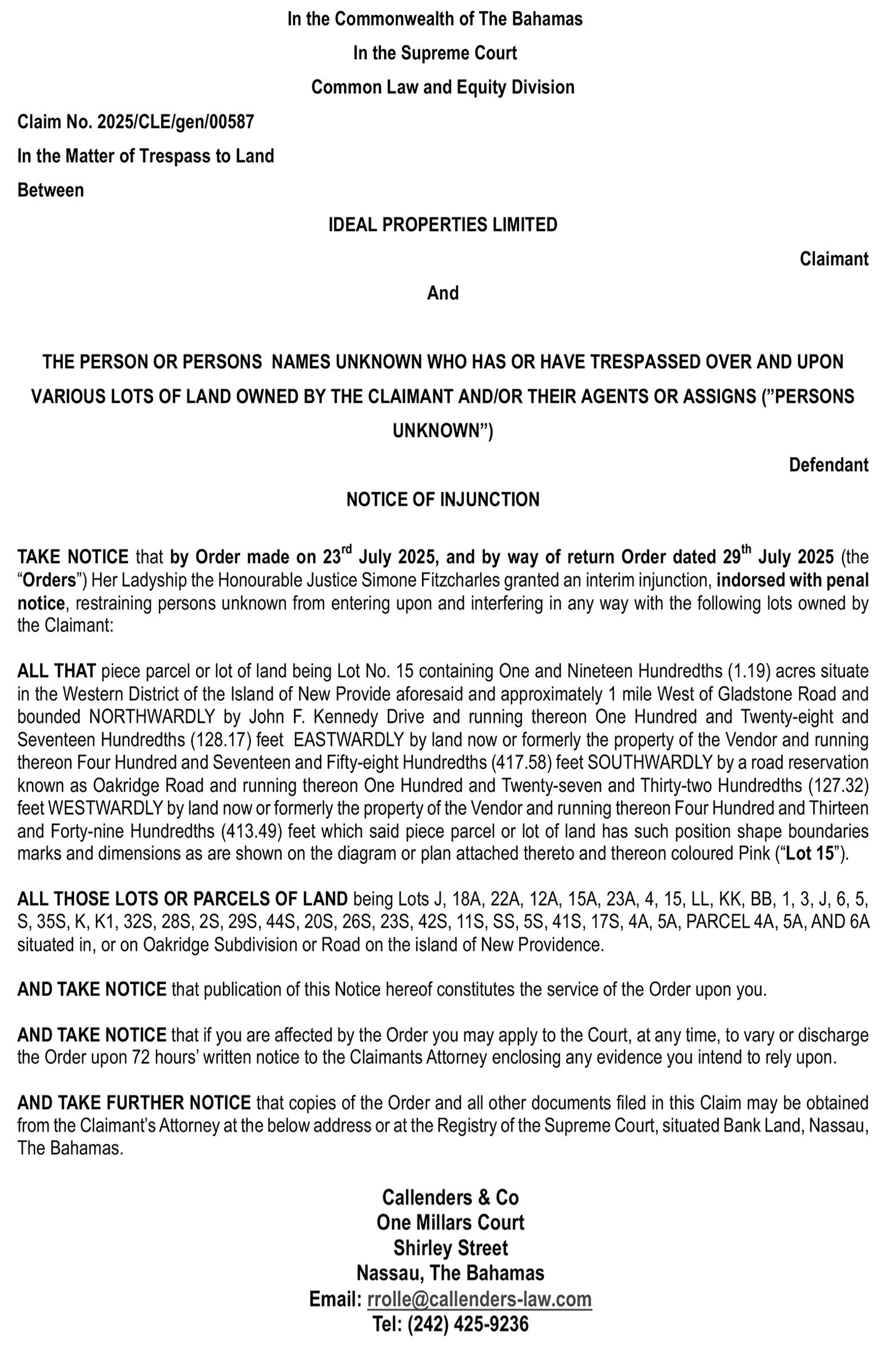
millions of dollars in liabili-
ties incurred elsewhere in its global empire on to the Bimini resort’s books.
Complaining that this has undermined the value of its investment, while also “depriving” it of expected profits, RAV Bahamas claimed that Genting “has deliberately kneecapped” its attempts to gain a true understanding of Resorts World Bimini’s true financial position by denying “full access” to the property’s financial records and its calls for an independent audit. But Genting Americas and its affiliates have vehemently denied all of RAV Bahamas’ various claims and assertions. They, in turn, have accused their minority partner of trying “to extract an exorbitant payment” by mounting the $600m damages claim, while also seeking to “inflict severe reputational damage” on the publicly-listed resort, gaming and leisure group through a series of “baseless” allegations. And RAV Bahamas was forced to file its amended complaint, containing the $201m liability’s alleged conversion and “masking”, in the south Florida court on Tuesday night after a judge ruled its initial lawsuit “cannot proceed” because it failed to name BB Entertainment, the resort’s immediate holding company, as a party in the action.
Judge Joan Lenard found the claim “must be brought on behalf of” BB Entertainment, in which RAV Bahamas has a 22 percent minority equity stake, because all the lawsuit allegations are derived from purported “wrongful conduct” that harmed Resorts World Bimini’s holding company. As a result, Judge Lenard determined that BB Entertainment is “an indispensable party” to the dispute with the Malaysian resort and gaming conglomerate. Its non-inclusion meant RAV Bahamas’ original lawsuit was dismissed, but the judge has now given Mr Capo and his family 21 days in which to file a new lawsuit that addresses the flaws she identified. RAV Bahamas, in the latest version of its lawsuit, says it is now bringing the complaint “derivatively” on BB Entertainment’s behalf. However, this will almost certainly be subjected to further legal challenge and attacks by Genting. The Malaysian conglomerate, in seeking to dismiss the lawsuit, asserted that RAV Bahamas’ claims “must be brought in a derivative shareholder action with BB Entertainment joined as a nominal defendant”. This was because BB Entertainment, rather than RAV Bahamas, is the entity suffering direct
damage if the allegations are true, rather than the latter, whose harm is “derived” or indirect.
Genting added that, if the south Florida court was to find BB Entertainment should be joined as a defendant, it would defeat use of the “diversity” clause because both the latter entity and RAV Bahamas are domiciled in this nation. This has likely influenced RAV Bahamas’ move to name BB Entertainment as a plaintiff, even though Genting has a majority of directors and thus Board control of the latter. Judge Lenard said the relief sought by RAV Bahamas, namely the $600m damages and unwinding of debt liabilities alleged to have been improperly incurred, would also benefit BB Entertainment. This, she added, was further confirmation of the case’s “derivative nature”.
Finding that BB Entertainment must be joined as a party to the lawsuit, the judge ruled: “The court will grant RAV one opportunity to amend the complaint to conform with” her derivative findings and address any repercussions this has for the “diversity” clause given that Mr Capo’s vehicle and BB Entertainment are Bahamian entities. RAV Bahamas now has 21 days to file its revised complaint.

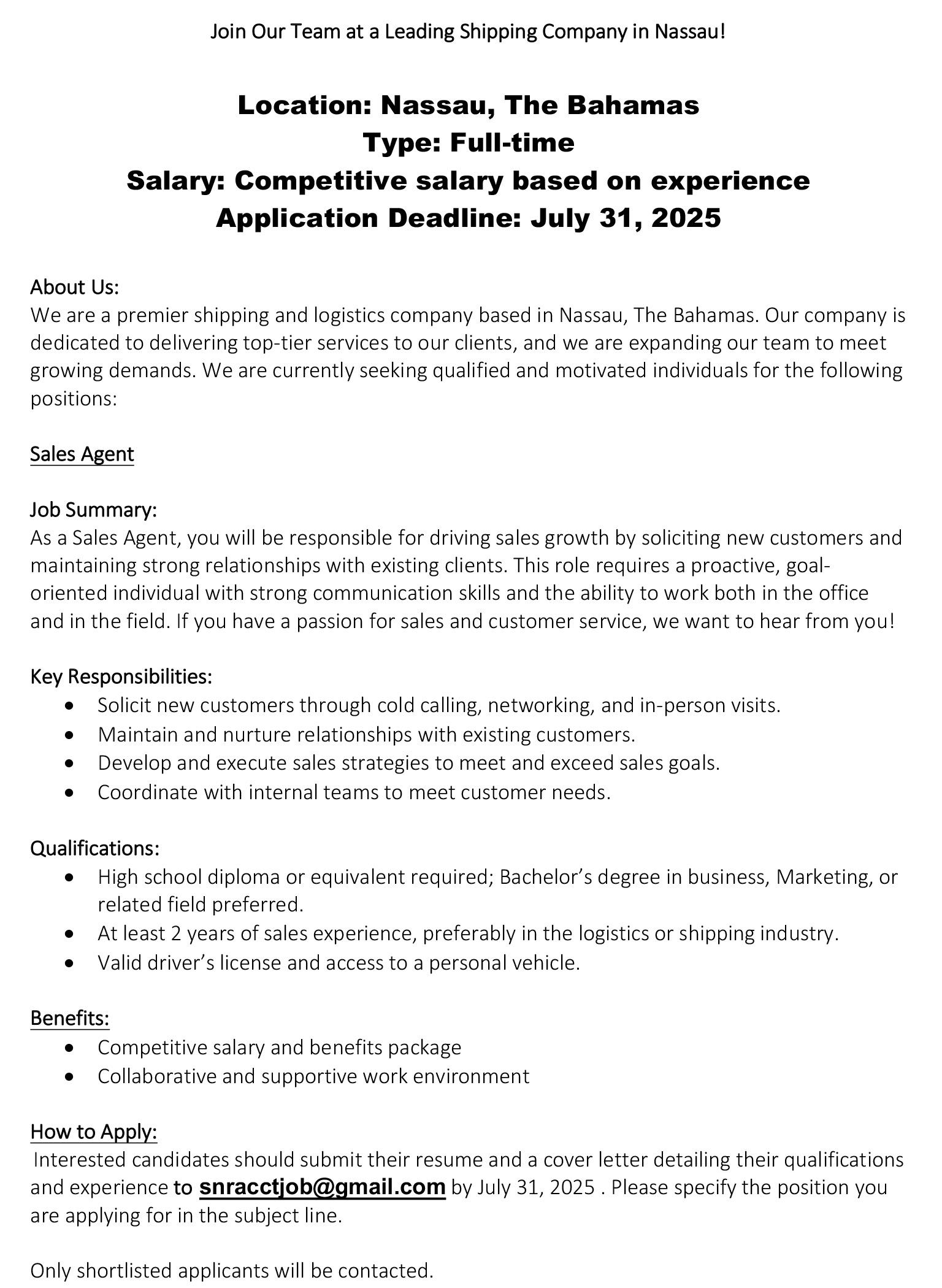
Minister promises full Loan agreement reveal
HOSPITAL - from page B5
fund Chinese contractor and the Chinese workers.”
Dr Minnis also raised concerns that the hospital when constructed will become a “white elephant” due to lack of staffing, or if it will draw funds from other medical facilities in The Bahamas to remain operational
“I have raised concerns about this project before in this place. Many other medical professionals are alarmed at this project for many reasons, ranging from staffing, environmental concerns, traffic flows, logistics and other problems,” said Dr Minnis “The Government has not released any detailed plans anyone is aware of declaring how we will find the necessary staff to run this hospital. Many are worried that this project will become a white elephant and will cause more
Non-compete clause struggle for developer
“We intend to aggressively defend ourselves against these baseless allegations and will pursue all available legal remedies against Soho Development and Roger Stein, including claims for any damages their actions may have caused.”
However, William A. Brewer III, the attorney representing Mr Stein and his company, countered:
“Soho seeks to hold Two Roads accountable for its betrayal of the trust he [Stein] placed in them. No one should be able to circumvent binding agreements and profit without consequence.
“If business partners can sidestep NDAs (non-disclosure agreements) without
facing real consequences, then every developer, investor and business partner who works in good faith is vulnerable.” The dispute’s roots date back to 2017 when the Ocean Club’s owner, Access Industries, approached Mr Stein “to begun exploratory work” on the development now underway. Access Industries, the development’s main financing and equity partner, manages a $35bn investment portfolio and is owned by billionaire, Leonard “Len” Blavatnik. However, it is not named as a defendant in the New York action, and it is thought unlikely that the lawsuit will have any impact on the project’s development or the Bahamian construction jobs likely to be generated.
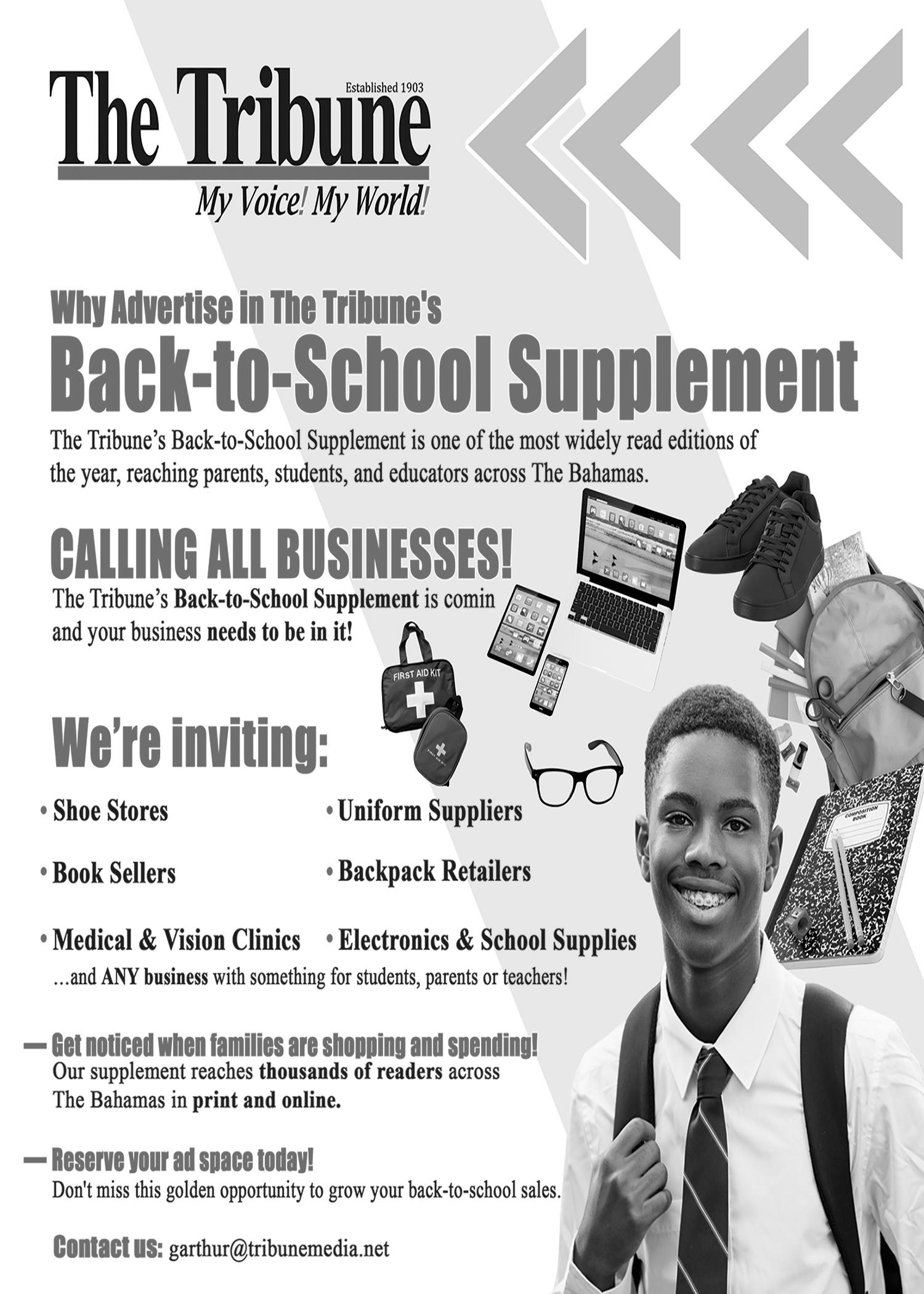
“This early stage work included initial planning, conceptual development, public relations and related meetings,” Mr Stein’s legal action asserted. “In early 2021, an executive with Access again contacted Stein, this time to lead the execution of a $350m luxury residential development on a six-acre site adjacent to the Four Seasons hotel [Ocean Club] on Paradise Island in The Bahamas.”
Suggesting that Mr Stein was selected on the basis of his “more than 20 years’ experience in The Bahamas, including expertise in land acquisition, government approvals and entitlements, financing and public relations, with long-standing local relationships”, the lawsuit added that he then selected Two Roads to work with him as a “co-sponsor” of the project.
The two parties allegedly signed a confidentiality and non-disclosure agreement that “expressly prohibited” Two Roads from disclosing Soho Development’s confidential information or “pursuing” the development without the latter’s involvement.
“Unfortunately, Two Roads violated the agreement by pursuing the project without Soho’s consent, misusing Soho’s proprietary information for its own benefit and engaging with other potential co-sponsors. Two Roads exploited the confidential information and contracts provided by Soho, thereby breaching their contractual obligations. This conduct constitutes a clear breach of the agreement,” the lawsuit claims.
“After being selected by Access for this high-profile project, Stein initiated predevelopment efforts for a high-end residential project, including conceptual planning and feasibility work.
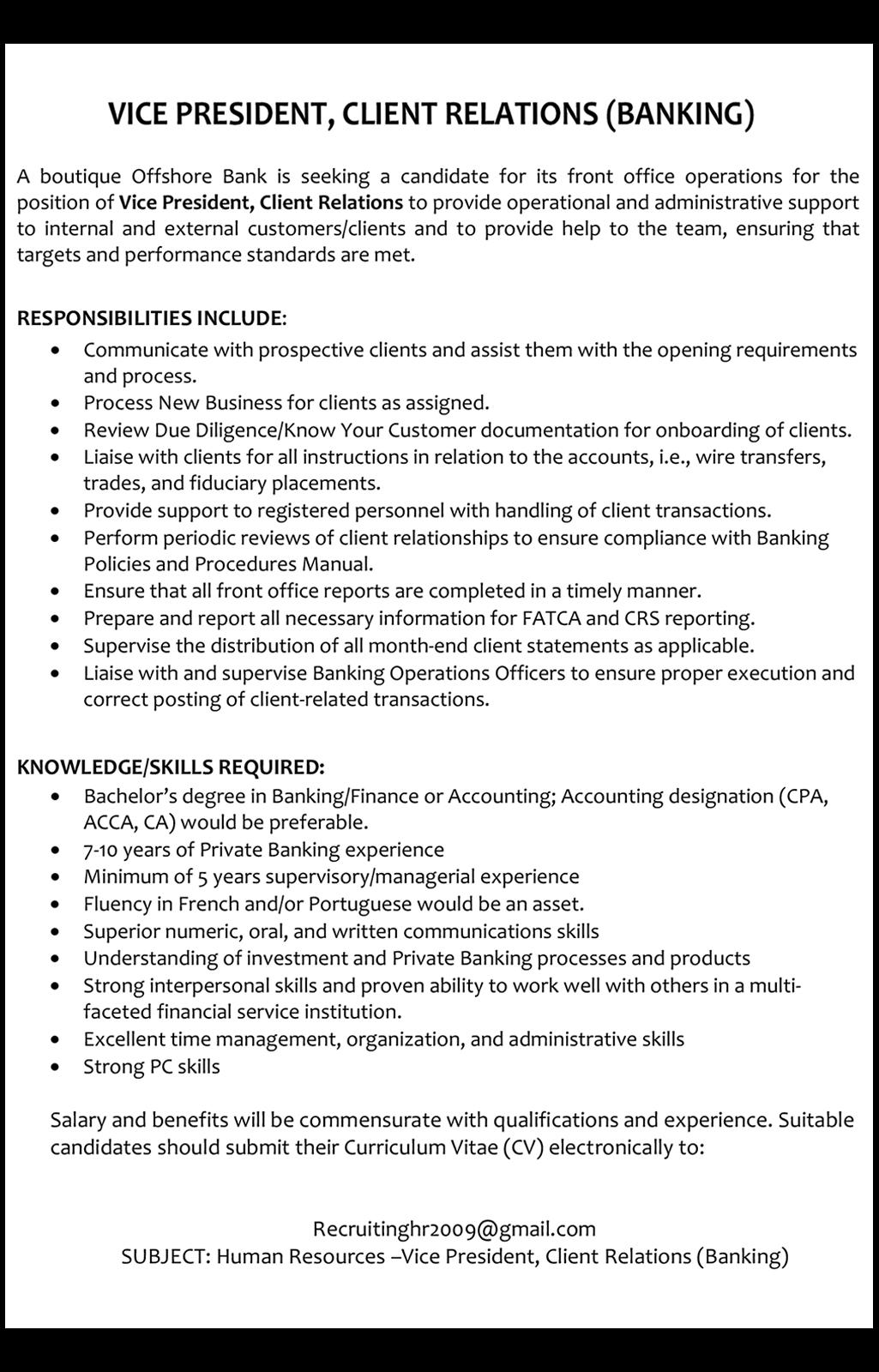
problems for the health care system.
“Many are concerned that it will draw resources away from PMH, the Rand Memorial and clinics across the country. Another concern is that when the hospital is finished, it will sit for quite a while not being fully utilised because we do not have all the people required to operate it.”
Dr Darville defended the Government’s plans and maintained that the Davis administration is committed to improving healthcare
During this early phase, Stein commissioned site and environmental assessments, ran extensive processes to identify and retain an overall project architect and a separate interior design firm, conducted feasibility and zoning analyses, and advanced crucial relationships with local government authorities related to site plan and overall project approval for the highly controversial site.
“Stein retained all preliminary work products from this period, including consultant rosters, feasibility studies, architectural conceptual plans and renderings, and other materials, positioning Soho to move forward with the project whenever the right time emerged.”
Jonah Sonnenborn, head of Access Industries’ real estate division, contacted Mr Stein in April 2021 to start moving the project forward.
“Sonnenborn asked Soho to step into the central role of ‘sponsor’, serving as the public face of the estimated $350m project and managing the day-to-day execution of the development including site control, government approvals, permitting, construction oversight, architectural selection and design, interior designer selection and design, landscaping architect selection and design, budgeting, construction loan guarantees, sales and marketing and overall timelines,” the lawsuit alleged.
“As the sponsor, it was expressly understood that Soho, along with the cosponsor, would contribute 10 percent of the required equity and assume primary responsibility for the project’s success or failure. Access, for its part, would contribute the required equity as an investor. Stein agreed that Soho would assume the role of lead sponsor to help advance the project.
“The residential project’s proximity to, and potential connection with, the Four Seasons Ocean Club made it attractive for prospective developers. However, the project’s size required a co-sponsor with a robust balance sheet. Following significant outreach and diligence, Stein secured an appropriate co-sponsor, Two Roads.”
delivery systems for all Bahamians. He added that an additional agreement with the China ExportImport Bank for funding has not been signed as yet ,and committed to revealing the loan agreement to Parliament once it is finalised.
“I assure you that this administration has no intention of constructing a hospital and creating a white elephant,” said Dr Darville “We’ve been guided by experts on what we need to do, and we
The two allegedly agreed their confidentiality and non-disclosure agreement on July 22, 2021, and then began negotiating a joint venture agreement with Access Industries for the project. However, the talks ran into difficulties over the alleged terms demanded by the Ocean Club owner, which wanted a non-compete clause included to prevent Mr Stein and Two Roads working on other Bahamas projects.
“During September 2021, Access intensified pressure to complete the joint venture agreement and insisted that it be signed before a scheduled government meeting,” Mr Stein’s lawsuit alleged.
“Co-sponsors Soho and Two Roads informed Access that the draft joint venture agreement stripped them of essential protections and imposed commercially unreasonable terms, including a non-compete provision that prevented the sponsors from engaging in other real estate development in The Bahamas.
“This prohibition is ironic, as Soho’s local knowledge and relationships in The Bahamas were precisely why Access selected Soho as the lead developer of the project. Notably, however, that provision did not encumber Two Roads, because it lacked relationships or experience in The Bahamas,” it added.
“Access’s demands levied a disproportionate burden upon Soho. It was at this time that Soho’s goodwill towards Two Roads backfired: The value of their introductions, predevelopment work and hard-won local relationships was leveraged by Two Roads to negotiate exclusive terms with Access without Soho’s consent, leaving Soho with no compensation for its years of effort.”
Despite continued talks, “Access refused to consider Stein’s objections to the expanded non-compete provision. On September 28, 2021, Access informed the co-sponsors that it was unwilling to remove the strict and re-traded noncompete provision”.
Mr Stein and Soho Development were unable to accept those terms, and instead held on to hope
are following our blueprint to ensure that it’s happened.
“Once again, the Bahamian people can rest assured that on conclusion of these loan facilities, I will come to this Parliament with a communication to fully outline, in a transparent way, the entire steps and end product of the loan with the Chinese government.”
that their agreement with Two Roads would ensure their continued involvement. “Gradually, Soho was excluded from the project as Access worked directly with Two Roads,” the original development partner claimed.
“Given that the agreement explicitly prevented Two Roads from ‘maintaining contact with any third parties for the purpose of engaging in the project’, Two Roads was required to regard Soho’s exclusion from the project as its own exclusion.... Defendant surreptitiously pursued the development of the project with Access.
“Following Stein’s exclusion from the project, and with no need for further evaluation of the project, Two Roads continued to use his confidential information. Two Roads never compensated Soho for its contributions, nor did it obtain Soho’s written consent to act in violation of the agreement. Defendant continued to use Stein’s confidential information in new collaborations following his removal.”
Mr Stein alleged that his subsequent efforts to find out about the project’s progress were met “met with delay, deflection and misdirection”, and that Access Industries and Two Roads have proceeded together with himself excluded.
“Two Roads and Access announced that they were breaking ground on the development in January 2025. Now marketed as ‘The Ocean Club, Four Seasons Residences, Bahamas,’ the project has advanced well into the pre-sale phase, with over $150m in residential unit pre-sales. Defendant [Two Roads] stands to earn more than $50m,” he claimed.
Mr Stein’s efforts to redevelop the South Ocean property failed amid an acrimonious New York legal battle with his financing partner, hedge fund Plainfield Asset Management, which took place around 15 years ago. His efforts to acquire the British Colonial also did not succeed with the property ultimately sold to Baha Mar contractor, China Construction America (CCA).

TRUMP’S LATEST TARIFF DEADLINE IS APPROACHING. HERE ARE THE TRADE DEALS THE US HAS ANNOUNCED SO FAR
By WYATTE GRANTHAM-PHILIPS
AP Business Writer
THE clock is ticking closer to U.S. President Donald Trump's latest tariff deadline of Aug 1. And while several more deals — or at least frameworks for deals — have been reached since his last tariff deadline of July 9 came and went, trade talks with many countries are still in flux.
Trump unveiled sweeping import taxes on goods coming into the U.S. from nearly every country back in April. That included heightened so-called reciprocal rates for certain countries, the bulk of which have since been postponed twice.
The first 90-day pause arrived in an apparent effort to quell global market panic and facilitate country-bycountry negotiations, with the Trump administration at one point setting a lofty goal of reaching 90 trade deals in 90 days.
But three months later, only two deals emerged: with the U.K. and Vietnam. A separate "framework" for a deal was hashed out with China. And by early July, Trump began sending warning letters that higher tariffs would be imposed
against dozens of countries on Aug. 1. Since then, the U.S. has announced more trade frameworks. But, key details remain sparse — or not immediately captured in writing. Here's what we know about the agreements so far, in the order of those most recently announced.
South Korea
The U.S. president said he reached an agreement with Seoul on July 30 that would impose a 15% tariff for goods from South Korea. The countries have also agreed for South Korea to buy $100 billion in energy resources from the U.S. and for South Korea to give to the U.S. $350 billion for "investments owned and controlled by the United States, and selected by myself, as president," Trump said.
European Union
The U.S. and the EU announced a trade framework that imposes 15% tariffs on most European goods — warding off Trump's most recent threat of 30% if no deal had been reached by Aug. 1. But some key details require more work. The
headline of the agreement, unveiled July 27, is that the 15% tariff rate will apply to 70% of European goods brought into the U.S. — with the EU later confirming that that rate applies to pharmaceuticals, semiconductors, and car and car parts. But the remaining 30% of those imports is still open for negotiations.
European Commission President Ursula von der Leyen said that both sides had agreed to zero tariffs for a range of "strategic" goods. Meanwhile, Trump pointed to heightened investments from European companies in the U.S. — including what Trump said was $750 billion (638 billion euros) worth of natural gas, oil and nuclear fuel over three years, as well as an additional $600 billion (511 billion euros) under a political commitment that isn't legally binding, officials said.
Japan
On July 22, Trump announced a trade framework to impose 15% tariffs on Japan — down from his previously-threatened rate of 25%. The U.S. president also said Japan would invest $550 billion into the U.S. and would "open" its
economy to American autos and rice.
The newly-agreed on 15% tariff rate also applies to Japanese cars — marking a welcome relief for automakers like Toyota Motor Corp. and Honda — which, like other automakers, have faced a 25% levy on key parts and finished vehicles going into the U.S. since earlier this year. But car companies in other countries, including U.S. competitors, worry that this could put them at a disadvantage.
Philippines
Shortly after a July 22 meeting with Philippine President Ferdinand Marcos, Jr., Trump announced that he would lower his upcoming tariffs on imports from the country to 19% — down just 1% from his previous threat of 20%.
In return, Trump said on Truth Social, the U.S. would not pay tariffs on American goods it shipped to the Philippines. But additional details remained unclear. Marcos said his country was considering options such as having an open market without tariffs for U.S. automobiles, but emphasized details were still left to be worked out.
Indonesia
On July 15, Trump again took to social media to announce that he's agreed to lower his planned tariffs on Indonesian goods to 19% — down from a previouslythreatened levy of 32% — while American goods sent to the southeast Asian country will face no tariffs.
A fact sheet from the White House later confirmed that "over 99% of U.S. products" exported to Indonesia would be sent duty-free.
Indonesian President Prabowo Subianto said he will continue to negotiate with Trump, in hopes of further lowering the coming U.S. tariffs.
Vietnam
On July 2, Trump announced a trade deal with Vietnam that he said would allow U.S. goods to enter the country duty-free. Vietnamese exports to the U.S., by contrast, would face a 20% levy. That's less than half the 46% "reciprocal" rate Trump proposed for Vietnamese goods back in April. But in addition to the new 20% tariff rate, Trump said the U.S. would impose a 40% tax on "transshipping'' — targeting goods from another country that stop
in Vietnam on their way to the United States. Washington complains that Chinese goods have been dodging higher U.S. tariffs by transiting through Vietnam.
United Kingdom
On May 8, Trump agreed to cut tariffs on British autos, steel and aluminum, among other trade pledges — while the U.K. promised to reduce levies on U.S. products like olive oil, wine and sports equipment. The deal was announced in grandiose terms by both countries, but some key details remained unknown for weeks.
When the deal was announced, for example, the British government notably said that the U.S. agreed to exempt the U.K. from its then-universal 25% duties on foreign steel and aluminum — which would have effectively allowed both metals from the country to come into the U.S. duty-free.
But the timing for when those cuts would actually take effect stayed up in the air for almost a month. It wasn't until early June, when Trump hiked his steel and aluminum tariffs to a punishing 50% worldwide, that the U.S. acknowledged it was time to implement the agreement. And even then, U.S. tariffs on British steel and aluminum did not go to zero. The U.K. was the only country spared from Trump's new 50% levies, but still faces 25% import taxes on the metals.
META STOCK SURGES AFTER Q2 RESULTS BLOW PAST EXPECTATIONS DESPITE HEAVY AI SPENDING
By BARBARA ORTUTAY AP Technology Writer
META'S artificial intelligence spending spree appears to be paying off with investors, who sent the company's stock soaring after hours on Wednesday following a blowout quarterly earnings report.
The Menlo Park, California-based company easily beat Wall Street's expectations for the second quarter, helped by higher advertising revenue and a growing user base on its flagship social media platforms. The money is helping to fund the company's massive investments in AI development and hiring top talent at eye-popping compensation levels.
"Not only has Meta made demonstrable strides with AI, but it's helping to future proof itself as a growth company, should its family of apps get affected by the current anti-trust case or changing social media sentiment," said Forrester research director Mike Proulx.
Meta is facing an antitrust case that's now awaiting a judge's decision and could force the company to break off WhatsApp and Instagram, startups Meta bought more than a decade ago that have since grown into social media powerhouses.
The company earned $18.34 billion, or $7.14 per share, in the April-June period. That's up 36% from
$13.47 billion, or $5.16 per share, in the same period a year earlier. Revenue jumped 22% to $47.52 billion from $39.07 billion.
Analysts expected Meta to earn $5.88 per share on revenue of $44.81 billion, according to a poll by FactSet.
Meta's daily active user base on its apps — Facebook, Messenger, WhatsApp, Instagram and Threads — was 3.48 billion, up 6% year-over-year.
Meta said it expects costs to increase as it spends billions on infrastructure and luring highly compensated employees as it works on its AI ambitions. It's forecasting 2025 expenses to be in the range of $114 billion to $118 billion, up 20% to 24% year-over-year.
In the latest demonstration of his AI enthusiasm, CEO Mark Zuckerberg on Wednesday posted a note detailing his views on "personal superintelligence" that he believes will "help humanity accelerate our pace of progress." While he said that developing superintelligence is now "in sight," he did not detail how this will be achieved or exactly what "superintelligence" means. The abstract idea of "superintelligence" is what rival companies call artificial general intelligence, or AGI. It's the latest pivot for a tech leader who in
2021 went all-in on the idea of the metaverse, changing the company's name and investing billions into advancing virtual reality and related technology.
"Meta's vision is to bring personal superintelligence to everyone. We believe in putting this power in people's hands to direct it towards what they value in their own lives," Zuckerberg wrote. "This is distinct from others in the industry who believe superintelligence should be directed centrally towards automating all valuable work, and then humanity will live on a dole of its output."
Zuckerberg said in a conference call he believes AI glasses are going to be "the main way we integrate superintelligence."
Last month, Meta invested $14.3 billion in AI company Scale and recruited its CEO Alexandr Wang to join a team developing "superintelligence." The tech giant also cut a 20-year deal in early June to secure nuclear power to help meet surging demand for AI and other computing needs.
Meta ended the quarter with 75,945 employees, up 7% from a year earlier.
Meta's shares rose $81.87, or 11.8% to $777.08 in afterhours trading — on track to reach a record high Thursday after the stock market opens.


Bessent says new Trump child savings accounts are ‘back door for privatizing Social Security’
By MICHELLE L. PRICE and LISA MASCARO Associated Press
TREASURY Secre-
tary Scott Bessent said Wednesday that the Trump administration was committed to protecting Social Security hours after he said in an interview that a new children's savings program
President Donald Trump signed into law "is a back door for privatizing Social Security."
Bessent said Wednesday evening that the accounts created under Trump's tax break-and-spending cut law "will supplement the sanctity of Social Security's guaranteed payments."
"This is not an either-or question: our Administration is committed to protecting Social Security and to making sure seniors have more money," Bessent said in a post on X.
Bessent's remarks about privatizing Social Security, which he made at a forum hosted by Breitbart News, were striking after Trump's repeated promises on the campaign trail and in office that he would not touch Social Security. It also reignited an issue that has dogged Republicans for years. The White House did not respond to a request for comment.
Democrats quickly seized on the comment as a sign the GOP wants to revive a dormant but unpopular push to privatize the long-running retirement program.
"A stunning admission," Senate Democratic leader Chuck Schumer said in a Senate speech. "Bessent
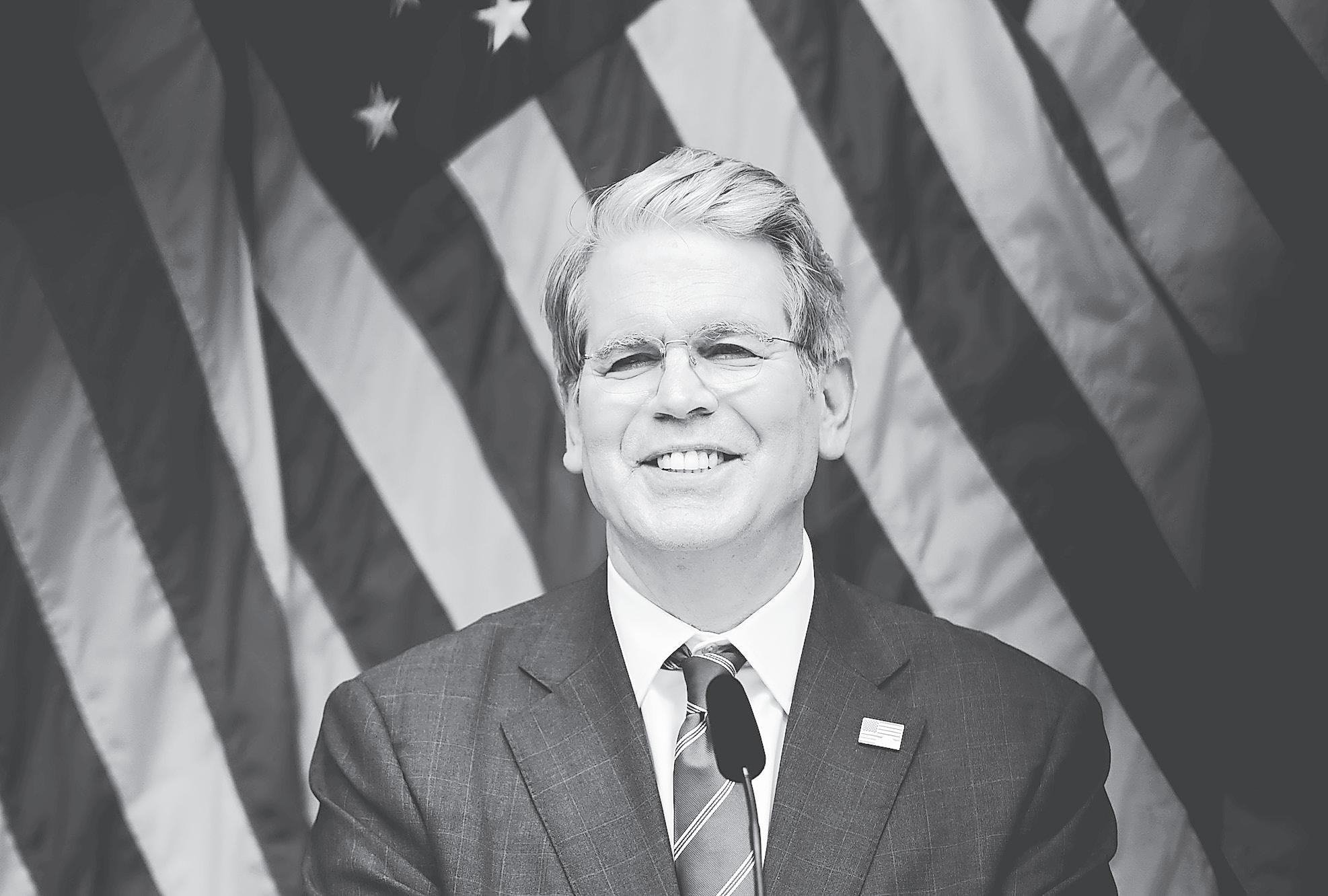
actually slipped, told the truth: Donald Trump and government want to privatize Social Security."
The idea of privatizing Social Security has been raised by Republicans before, but quickly abandoned. Millions of Americans have come to rely on the certainty of the federal program in which they pay into the system during their working years and then receive guaranteed monthly checks in their older age. Privatization proposals would shift the responsibility for the retirement savings system away from the government and onto Americans themselves. Through personal savings accounts, people would need to manage their own funds, which may or may not be enough to live on as they age.
Under the GOP's "big, beautiful bill," as the law is called, Republicans launched a new children's savings program, Trump Accounts, which can be created for babies born in the U.S. and come with a potential $1,000 deposit from the Treasury.
Much like an individual retirement account, the Trump Accounts can grow over time, with a post-tax contribution limit of $5,000 a year, and are expected to be treated similarly to the rules for an IRA, and can eventually be tapped for distribution in adulthood.
But Bessent on Wednesday allowed for another rationale for the accounts, suggesting they could eventually be the way Americans save for retirement.
"In a way, it is a back door for privatizing Social Security," Bessent said
What we know about a new health data tracking system being announced by White House
By AMANDA SEITZ Associated Press
PRESIDENT Donald Trump has announced a plan for a new private health tracking system that will make it easier for patients to access their health records and monitor their wellness across health care systems and technologies. The system, however, is raising a host of privacy questions.
The collaboration between the federal government and Big Tech would allow patients to more seamlessly track and share their medical records or data among doctors, hospital systems and health apps, the administration and participating companies say.
Details of the system were announced Wednesday during a White House event dubbed "Making
Health Technology Great Again."
Here's how it would work
The system would be maintained by the federal government through the Centers for Medicare and Medicaid Services, pulling health data kept by Big Tech companies like Amazon, Google and Apple as well as major health companies like hospital system Cleveland Clinic and insurer UnitedHealth Group. Patients will need to opt in to have their medical records and data shared, which CMS says will be kept secure. Once a patient is in the system, their information could be shared across apps or health systems that have joined the initiative. So, for example, the Apple Health app on your iPhone that tracks your daily step count or your sleep could access
NOTICE TO SHAREHOLDERS
The Board of Directors of Finance Corporation of Bahamas Limited hereby notifies its Shareholders that a dividend payment of fifteen cents ($0.15) per Ordinary share will be paid on 14th August 2025 to all Shareholders of record as at 7th August 2025.
lab results from your doctor's office. Putting that information together, the Trump administration says, will offer a fuller picture of your health.
Apps and AI technology could also help people make better choices at the grocery store or identify patterns in their day-to-day life that might be affecting their health, said U.S. Health and Human Services Secretary Robert F. Kennedy Jr. during Wednesday's White House event.
"Now if you have your medical records, you can get personalized advice," Kennedy said.
How the system works now Currently, there's no unified database where a person's health data and medical records are kept. Each health system stores, shares and releases patients'
while speaking about the program.
The Treasury Department later issued a statement that said, "Trump Accounts are an additive government program that work in conjunction with Social Security to broaden and increase the savings and wealth of Americans. Social Security is a critical safety net for Americans and always will be."
Ever since the George W. Bush administration considered proposals to privatize Social Security more than 20 years ago, Republicans have publicly moved away from talking about the issue that proved politically unpopular and was swiftly abandoned.
In the run-up to the 2006 midterms, Democrats capitalized on GOP plans to privatize Social Security, warning it would decimate the program that millions
records in different ways. That's a big reason a lot of systems still rely on fax machines, because it's a guaranteed way to share records between offices and hospitals. Faxing is also a secure way to send information that complies with federal privacy laws.
Some health networks also have their own apps, electronic systems or websites that allow patients to look up their records online or share information with other providers.
The program could start next year
The U.S. Department of Health and Human Services says that 60 companies have signed on to work with the system and that they have pledged to "deliver results to the American people in the first quarter of 2026."
The Trump administration, however, made a similar proposal back in 2018 that never fully came to fruition.
Patient privacy is a top concern Patient advocates and ethicists say many may worry about how their
of Americans have come to rely on in older age. They won back control of both the House and the Senate in Congress. The Democrats warned Wednesday that Bessent's comments showed that Republicans want to shift the government-run program to a private one and are again trying to dismantle the retirement program that millions of Americans depend on.
"Donald Trump's Treasury Secretary Scott Bessent just said the quiet part out loud: The administration is scheming to privatize Social Security," Tim Hogan, a spokesperson for the Democratic National Committee, said in a statement.
"It wasn't enough to kick millions of people off their health care and take food away from hungry kids. Trump is now coming after American seniors with a 'backdoor' scam to take away the benefits they earned," Hogan said.
The Social Security program has faced dire financial projections for decades, but changes have long been politically unpopular.
Social Security's trust funds, which cover old age and disability recipients, will be unable to pay full benefits beginning in 2034, according to the most recent report from the program's trustees. Those officials have said those findings underline the urgency of making changes to programs.
Trump, attuned to Social Security's popularity, has repeatedly said he would protect it.
Throughout his 2024 presidential campaign, Trump repeatedly said he would "always protect Social Security" and said his Democratic opponents, President Joe Biden and Vice President Kamala Harris, would destroy the program.
During the 2024 primary, he accused other Republicans who have expressed support for raising the age for Social Security of being threats to the program.
Trump said in an interview with NBC's "Meet the Press" in December after he won the presidential election that "we're not touching Social Security, other than we might make it more efficient."
His White House this year said Trump "will always protect Social Security."
Social Security Administration Commissioner Frank Bisignano, a Wall Street veteran, was asked at his confirmation hearing in March about whether Social Security should be privatized. He said he'd "never heard a word of it" and "never thought about it."
Also, digital privacy advocates say they are skeptical that patients will be able to count on their data being stored securely.
"This scheme is an open door for the further use and monetization of sensitive and personal health information," said Jeffrey Chester at the Center for Digital Democracy.
health information — something Americans have long carefully guarded — could be used in ways that they don't want or expect. "There are enormous ethical and legal concerns," said Lawrence Gostin, a Georgetown University law professor who specializes in public health. "Patients across America should be very worried that their medical records are going to be used in ways that harm them and their families."

NOTICE TO SHAREHOLDERS
The Board of Directors of Finance Corporation of Bahamas Limited hereby notifies its Shareholders that an extraordinary dividend payment of one dollar and twenty-five cents ($1.25) per Ordinary Share will be paid on 14th August 2025 to all Shareholders of record as at 7th August 2025.
TRUMP ANNOUNCES 25% TARIFF ON INDIA AND UNSPECIFIED PENALTIES FOR BUYING RUSSIAN OIL
By JOSH BOAK and RAJESH ROY Associated Press
THE United States will impose a 25% tariff on goods from India, plus an additional import tax because of India's purchasing of Russian oil, President Donald Trump said Wednesday.
India "is our friend," Trump said on his Truth Social platform, but its tariffs on U.S. products "are far too high."
The Republican president added India buys military equipment and oil from Russia, enabling Moscow's war in Ukraine. As a result, he intends to charge an additional "penalty" starting on Friday as part of the launch of his administration's revised tariffs on multiple countries.
Trump told reporters on Wednesday the two countries were still in the middle of negotiations on trade despite the tariffs slated to begin in a few days.
"We're talking to India now," the president said. "We'll see what happens."
The Indian government said Wednesday it's studying the implications of Trump's tariffs announcement.
India and the U.S. have been engaged in negotiations on concluding a "fair, balanced and mutually beneficial" bilateral trade agreement over the last few months, and New Delhi remains committed to that objective, India's Trade Ministry said in a statement.
Trump on Wednesday signed separate orders to tax imports of copper at 50% and justify his 50% tariffs on Brazil due to their criminal prosecution of former President Jair Bolsonaro and treatment of U.S. social media companies. Trump also signed an order saying that
government now had the systems in place to close the tariff loophole on "de minimis" shipments, which had enabled goods priced under $800 to enter America dutyfree, largely from China.
Meanwhile, Trump announced agreements with South Korea, which had faced 25% tariffs starting Friday, and with Pakistan. The South Korea agreement will impose a 15% tariff for goods from there, while having South Korea buy $100 billion in energy resources from the U.S. and for South Korea to give to the U.S. $350 billion for "investments owned and controlled by the United States, and selected by myself, as president," Trump said.
The agreement with Pakistan includes the development of its oil reserves. Meanwhile, Treasury Secretary Scott Bessent briefed him on trade talks with China.
Trump's view on tariffs
Trump's announcement comes after a slew of negotiated trade frameworks with the European Union, Japan, the Philippines and Indonesia — all of which he said would open markets for American goods while enabling the U.S. to raise tax rates on imports. The president views tariff revenues as a way to help offset the budget deficit increases tied to his recent income tax cuts and generate more domestic factory jobs.
While Trump has effectively wielded tariffs as a cudgel to reset the terms of trade, the economic impact is uncertain as most economists expect a slowdown in U.S. growth and greater inflationary pressures as some of the costs of the taxes are passed along to domestic businesses and consumers.
NOTICE
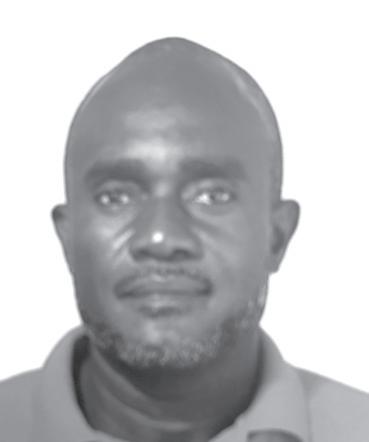
NOTICE is hereby given that DIEUFERNE PIERRE LOUIS of All Saints Road off Golden Isles, Nassau, h Bahamas, is applying to the Minister responsible for Nationality and Citizenship, for Registration Naturalization as a citizen of The Bahamas, and that any person who knows any reason why registration/naturalization should not be granted, should send a written and signed statement of the facts within twenty-eight days from the 31st day of July 2025 to the Minister responsible for nationality and Citizenship, P.O. Box N-7147, Nassau, New Providence, The Bahamas.
NOTICE

NOTICE is hereby given that ERNST ARRIS of Washington Street, Balfour Avenue, Nassau, The Bahamas, is applying to the Minister responsible for Nationality and Citizenship, for Registration Naturalization as a citizen of The Bahamas, and that any person who knows any reason why registration/naturalization should not be granted, should send a written and signed statement of the facts within twenty-eight days from the 31st day of July 2025 to the Minister responsible for nationality and Citizenship, P.O. Box N-7147, Nassau, New Providence, The Bahamas.

There's also the possibility of more tariffs coming on trade partners with Russia as well as on pharmaceutical drugs and computer chips.
Kevin Hassett, director of the White House National Economic Council, said Trump and U.S. Trade Representative Jamieson Greer would announce the Russia-related tariff rates on India at a later date.
Tariffs face European pushback
Trump's approach of putting a 15% tariff on America's long-standing allies in the EU is also generating pushback, possibly causing European partners as well as Canada to seek alternatives to U.S. leadership on the world stage.
WHAT WE KNOW

French President Emmanuel Macron said Wednesday in the aftermath of the trade framework that Europe "does not see itself sufficiently" as a global power, saying in a cabinet meeting that negotiations with the U.S. will continue as the agreement gets formalized.
"To be free, you have to be feared," Macron said. "We have not been
feared enough. There is a greater urgency than ever to accelerate the European agenda for sovereignty and competitiveness."
Seeking a deeper partnership with India
Washington has long sought to develop a deeper partnership with New Delhi, which is seen as a bulwark against China.
ABOUT A NEW HEALTH DATA TRACKING SYSTEM BEING ANNOUNCED BY WHITE HOUSE
By AMANDA SEITZ Associated Press
PRESIDENT Donald Trump has announced a plan for a new private health tracking system that will make it easier for patients to access their health records and monitor their wellness across health care systems and technologies. The system, however, is raising a host of privacy questions.
The collaboration between the federal government and Big Tech would allow patients to more seamlessly track and share their medical records or data among doctors, hospital systems and health apps, the administration and participating companies say.
Details of the system were announced Wednesday during a White House event dubbed "Making
Health Technology Great Again."
Here's how it would work
The system would be maintained by the federal government through the Centers for Medicare and Medicaid Services, pulling health data kept by Big Tech companies like Amazon, Google and Apple as well as major health companies like hospital system Cleveland Clinic and insurer UnitedHealth Group. Patients will need to opt in to have their medical records and data shared, which CMS says will be kept secure.
Once a patient is in the system, their information could be shared across apps or health systems that have joined the initiative. So, for example, the Apple Health app on your iPhone that tracks your daily step count or your sleep could access
NOTICE

NOTICE is hereby given that KENSON SAINT FARD of Rocky Pine Road, Cowpen Road, Nassau, h Bahamas, is applying to the Minister responsible for Nationality and Citizenship, for Registration Naturalization as a citizen of The Bahamas, and that any person who knows any reason why registration/naturalization should not be granted, should send a written and signed statement of the facts within twenty-eight days from the 31st day of July 2025 to the Minister responsible for nationality and Citizenship, P.O. Box N-7147, Nassau, New Providence, The Bahamas.
NOTICE

NOTICE is hereby given that WISLER MICHEL of George Town, Exuma, Bahamas is applying to the Minister responsible for Nationality and Citizenship, for registration/ naturalization as a citizen of The Bahamas, and that any person who knows any reason why registration/naturalization should not be granted, should send a written and signed statement of the facts within twenty-eight days from the 31st day of July, 2025 to the Minister responsible for nationality and Citizenship, P.O. Box N-7147, Nassau, Bahamas.

results from your doctor's office. Putting that information together, the Trump administration says, will offer a fuller picture of your health.
Apps and AI technology could also help people make better choices at the grocery store or identify patterns in their day-to-day life that might be affecting their health, said U.S. Health and Human Services Secretary Robert F. Kennedy Jr. during Wednesday's White House event.
relationship with
and the
likely to further
cooperation between
countries. When
in February met with
the U.S. president said
India would start buying American oil and natural gas.
"Now if you have your medical records, you can get personalized advice," Kennedy said. How the system works now Currently, there's no unified database where a person's health data and medical records are kept. Each health system stores, shares and releases patients' records in different ways. That's a big reason a lot of systems still rely on fax machines, because it's a guaranteed way to share records between offices and hospitals. Faxing is also a secure way to send information that complies with federal privacy laws.
NOTICE
COMMONWEALTH OF THE BAHAMAS 2025 IN THE SUPREME COURT CLE/QUI/No.00439 Common Law and Equity Division
IN THE MATTER of ALL THAT piece parcel or lot of land No.6, Block 29 situate at Coconut Grove Subdivision and on the eastern side of Sixth Street approximately 250 feet southwards of Palm Tree Avenue at the Central District of the island of New Providence in the Commonwealth of the Bahamas and containing 4.985 square feet. AND
IN THE MATTER of the Quieting Titles Act 1959 AND IN THE MATTER of of the Petition of Randy Thomas Lewis and Seanalea Linley Lewis
NOTICE
The Petitioner in this matter claims to be the owner in fee simple possession of the tract of land hereinbefore described and the Petitioner has made an application to the Supreme Court of the Commonwealth of the Bahamas under Section 3 of the Quieting Titles Act 1959 to have his title to the said land investigated and the nature and extent thereof determined and declared in the Certifcate of Title granted by the Court in accordance with the provisions of the said Act.
Copies of the Plan may be inspected during normal offce hours at:
(1) The Registry of the Supreme Court.
(2) The Chambers of the undersigned.
NOTICE IS HEREBY GIVEN that any person having dower or right to dower or an adverse claim or a claim not recognized in the Petition shall before the 4th day of September, A.D.,2025 from the publication of the notice inclusive of the day of such publication fle Notice in the Supreme Court in the City of Nassau in the Island of New Providence aforesaid and serve on the Petitioner or the undersigned a statement of his or her claim in the prescribed form verifed by an Affdavit to be fled therewith. The failure of any such person to fle and serve a statement of his or her claim within the time fxed by the Notice aforesaid shall operate as a bar to such claim.
Dated this 7th day of July, A.D., 2025 PYFROM & CO, Chambers No. 259, Shirley Street, Nassau, N.P., Bahamas. Phone: 325-2800
Attorneys for the Petitioner. (2x11 NJ)
MICROSOFT'S ANNUAL
CLOUD REVENUE HITS $75B, PROFIT BEATS EXPECTATIONS
By MATT O'BRIEN AP Technology Writer
MICROSOFT said Wednesday that annual revenue for its flagship Azure cloud computing platform has surpassed $75 billion, up 34% from a year earlier.
The Azure cloud business is a centerpiece of Microsoft's efforts to shift its focus to artificial intelligence, but until Wednesday the company hadn't disclosed how much money it makes.
The revelation came in the software giant's end-ofyear earnings report, one that also showed a 24% spike in the company's quarterly profit that beat Wall Street expectations and pleased investors wary about Microsoft's ongoing construction of costly new data centers needed to meet cloud computing and AI demand.
"We continue to scale our own data center capacity faster than any other competitor," CEO Satya Nadella said on an investor call, boasting that the company now has more than 400 of the sprawling facilities across six continents.
Microsoft's fiscal fourthquarter profit was $34.3 billion, or $3.65 per share, beating analyst expectations for $3.37 per share.
It posted revenue of $76.4 billion in the AprilJune period, up 18% from last year. Analysts polled by FactSet Research had been looking for revenue of $73.86 billion.
Microsoft launched Azure more than a decade ago, but the service has increasingly become intertwined with its AI ambitions, as the company looks to sell its AI chatbot and other tools to big business customers that are also reliant on its core online services.
It still trails behind its lead competitor, Amazon Web Services, which reported $107.6 billion in revenue for its fiscal year that ended in December.
Building the infrastructure to power cloud and AI technology is expensive, and Microsoft has looked for savings elsewhere. It announced layoffs of about 15,000 workers this year even as its profits have soared.
Nadella told employees last week the layoffs were "weighing heavily" on him but also positioned them as an opportunity to reimagine the company's mission for an AI era.
Still, the overall workforce numbers haven't changed. The company said it employed 228,000 fulltime employees as of June 30, the exact same amount it reported a year ago, though slightly more of them are now U.S.-based and fewer of them are in product support roles or consulting services.
Promises of a leaner approach have been welcomed on Wall Street, especially as Microsoft and other tech giants are trying to justify huge amounts of capital spending to pay for the data centers, chips and other components required to power AI technology.
Google said after releasing its earnings last week it would raise its budget for capital expenditures by an additional $10 billion to $85 billion. Microsoft's chief financial officer, Amy Hood, said she expects capital spending for the July-September quarter to be $30 billion.
Microsoft didn't disclose Wednesday to what extent sweeping U.S. tariffs are affecting its revenue, but its annual report lists tariffs among a number of risks the company faces.
"Increased geopolitical instabilities and changing U.S. administration priorities create an unpredictable trade landscape," the company said. It also said the "volatility of U.S. tariffs has triggered economic uncertainty and could impact cloud and devices supply chain cost competitiveness."

Most US stocks fall as hopes weaken for a September cut to interest rates
By STAN CHOE AP Business Writer
MOST U.S. stocks slipped on Wednesday after doubts rose on Wall Street about whether the Federal Reserve will deliver economy-juicing cuts to interest rates by September.
The S&P 500 edged down by 0.1%, coming off its first loss after setting all-time highs for six successive days. The Dow Jones Industrial Average dropped 171 points, or 0.4%, and the Nasdaq composite rose 0.1%.
Stocks felt pressure from rising Treasury yields in the bond market after the Federal Reserve voted to hold its main interest rate steady. The move may upset President Donald Trump, who has been angrily lobbying for lower interest rates, but it was widely expected on Wall Street.
What may have surprised investors more was Fed Chair Jerome Powell's pushing back on expectations that the Fed could cut rates at its next meeting in September. Besides Trump, two members of the Fed's committee have also been calling for lower rates to ease the pressure
on the economy, and they dissented in Wednesday's vote.
But Powell would not commit to a September cut in rates, pointing to how inflation remains above the Fed's 2% target, while the job market still looks to be "in balance."
A cut in rates would give the job market and overall economy a boost, but it could also risk fueling inflation when Trump's tariffs may be set to raise prices for U.S. consumers. The Fed's job is to keep both the job market and inflation in a good place.
Trump on Wednesday announced a 25% tariff on imports coming from India, along with an additional tax because of India's purchases of Russian oil, beginning on Aug. 1. That's when stiff tariffs Trump has proposed for many other countries are also scheduled to kick in, unless they reach trade deals that lower the rates.
"The economy is in good shape, but it's in an unusual situation," Powell said.
He also said that the Fed will receive two months' worth of data on inflation, the job market and other
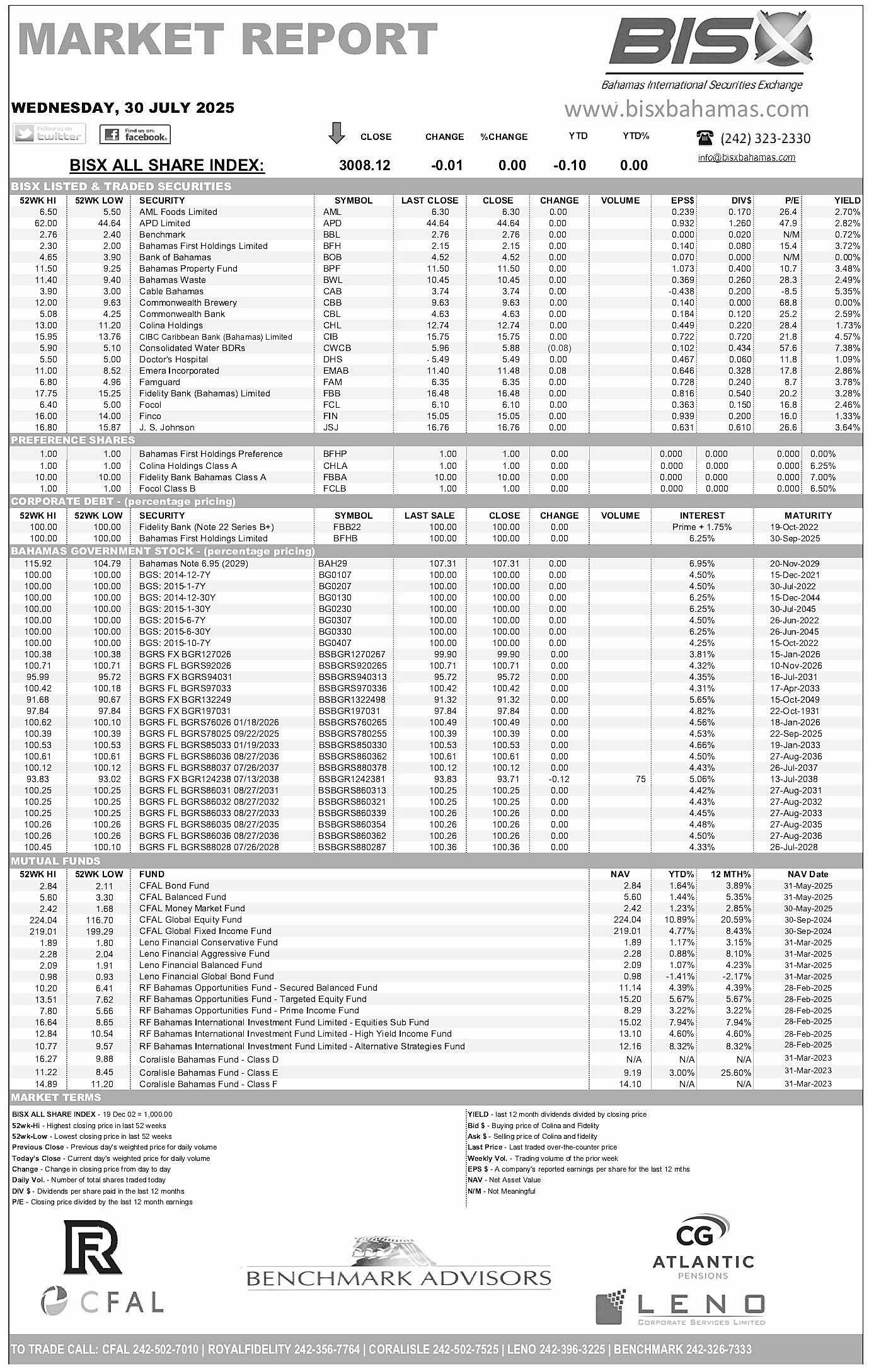
economic indicators before it meets again to vote on rates in September. That could give the Fed more confidence that the risk of high inflation is no longer bigger than the risk of a weak job market, a combination that would prod officials toward lowering rates.
Powell's comments drove traders to pare back bets on a cut in September. They now see just a 45% chance of that, down from a nearly 65% probability a day earlier, according to data from CME Group.
The yield on the two-year U.S. Treasury note rose to 3.93% from 3.86% late Tuesday. It tends to closely follow expectations for what the Fed will do with its overnight interest rate.
The 10-year Treasury, which also takes into account longer-term expectations for the economy and inflation, rose to 4.36% from 4.34%.
A report earlier in the morning suggested the U.S. economy's growth was much stronger during the spring than economists expected. But underlying trends beneath the surface may be more discouraging.
"Cutting through the noise of the swings in imports, the economy is still chugging along, but it is showing signs of sputtering," said Brian Jacobsen, chief economist at Annex Wealth Management.
On Wall Street, Humana rose 12.4% after the insurer and health care giant reported stronger results for the spring than expected. It also raised its
forecasts for profit and revenue over the full year.
Video-game maker Electronic Arts climbed 5.7% after likewise topping Wall Street's expectations. Companies are under pressure to deliver solid profit growth. They need to in order to justify the big jumps in their stock prices during recent months, which has caused some critics to say the broad U.S. stock market looks too expensive.
Trane Technologies, whose stock came into the day with a 27.5% gain for the year so far, tumbled even though it reported a stronger-than-expected profit for the latest quarter. The heating, ventilation and air conditioning company's revenue came up short of analysts' estimates, as did its forecast for profit in the current quarter. It dropped 8.4%.
Freeport-McMoRan, a copper producer with mines around the world, tumbled 9.5% after Trump signed an executive order to tax imports of copper at 50%. Starbucks slipped 0.2% after reporting a weaker profit than analysts expected as it tries to turn around its operations. The company is hoping to boost its performance through improved store operations and new products, including a cold foam protein drink. All told, the S&P 500 slipped 7.96 points to 6,362.90. The Dow Jones Industrial Average dropped 171.71 to 44,461.28, and the Nasdaq composite rose 31.38 to 21,129.67.
NOTICE IS HEREBY GIVEN as follows:
(a) Meiza Limited voluntary dissolution under the provisions of Section 138 (4) of the International Business Companies Act 2000.
(b) The dissolution of the said Company commenced on the 29th day of July 2025 when its Articles of Dissolution were submitted to and registered by the Registrar General.
(c) The Liquidator of the said Company is Delco Investments Limited of Deltec Bank & Trust Limited, Deltec House, Lyford Cay, P.O. Box N-3229, Nassau, Bahamas.
Dated this 31st day of July A.D., 2025. Delco Investments Limited Liquidator
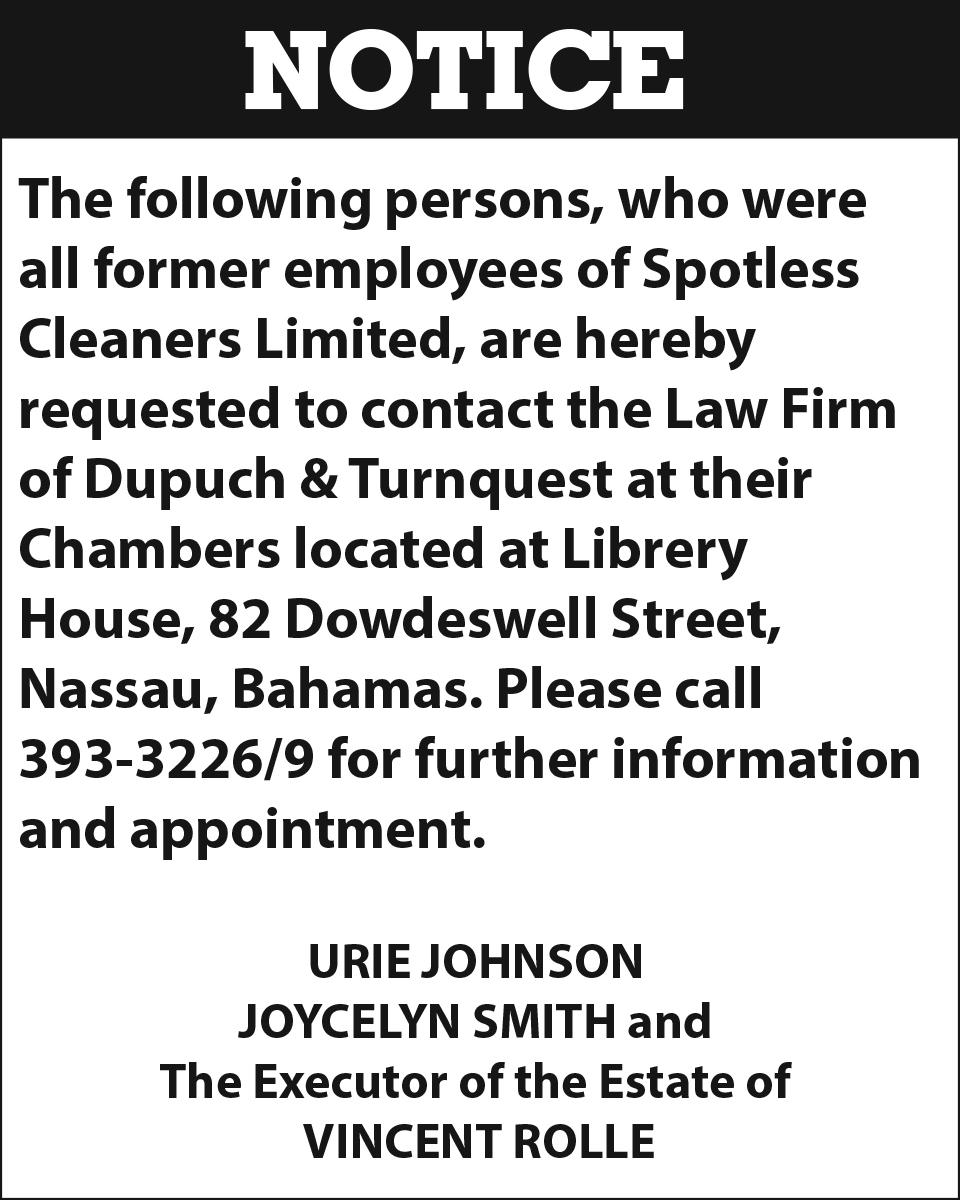
SENATE COMMITTEE ADVANCES TRUMP NOMINEE TO LEAD
CYBERSECURITY
AGENCY THAT PROTECTS ELECTION SYSTEMS
By ALI SWENSON Associated Press
A U.S. Senate committee voted Wednesday to advance President Donald Trump's pick to lead the agency that secures the nation's critical infrastructure, including election systems.
Members of the Senate Homeland Security and Governmental Affairs Committee voted 9-6 to recommend Sean Plankey 's nomination for director of the Cybersecurity and Infrastructure Security Agency, known as CISA, which sits under the Department of Homeland Security.
The agency has been dealing with workforce and funding cuts, as well as criticism from Republicans over some of its election-related activities.
Plankey, who retired from the U.S. Coast Guard in 2023, worked in the first Trump administration as a director for cyber policy at the National Security Council and then as a principal deputy assistant secretary at the U.S. Department of Energy.
Plankey faces one potential obstacle in his path to confirmation: Sen. Ron Wyden, D-Ore., placed a hold on his nomination in April to demand that CISA release an unclassified 2022 report on telecommunications vulnerabilities. Wyden said Wednesday he would not relent until the report is public. CISA spokesperson Marci McCarthy said in an emailed statement that the agency plans to release the report.
CISA is tasked with protecting the nation's critical infrastructure, from dams and power plants to banks and voting systems.
It has received praise from state election officials of both parties for its work protecting those systems. But it also has been sharply criticized by Republicans who claim its efforts to counter misinformation about elections and the COVID-19 pandemic veered into censorship. During her Senate hearing in January to be homeland security secretary, Kristi Noem said the agency had strayed "far off mission."
CISA officials have said they were never engaged in censorship and only worked with states in 2020 to help them notify social media companies about misinformation spreading on their platforms. They said the agency did not instruct or try to coerce those companies to act.
CISA worked with other federal agencies in 2024 to alert the public to various foreign misinformation campaigns related to the election.
If confirmed by the Republican-controlled Senate, he will inherit an agency that has been mired in partisan tensions over the role it should play in combating false claims about voting or election fraud. Those claims have led to a lack of trust among Republicans in election workers and voting machines since Trump started lying about widespread fraud leading to his loss in the 2020 election. A majority of Republicans still believe that Democrat Joe Biden was not legitimately elected president in 2020.
During his July 24 confirmation hearing, Plankey faced some pointed questions about election security.
When Sen. Richard Blumenthal, D-Conn., asked him if the 2020 election was rigged and stolen, Plankey did not answer directly. Instead, he said he had not reviewed that election's cybersecurity and that his personal opinions were not relevant. He acknowledged that Biden's victory was confirmed by the Electoral College and that he was sworn in.
Blumenthal then pressed Plankey on what he would do if Trump later pushed him to falsely claim the 2026 or 2028 elections were rigged.
"Senator, as a cybersecurity professional, these are state-run elections," Plankey answered. "I have not reviewed the cybersecurity posture of all 50 states. That's like a doctor who's diagnosing somebody over the television because they saw him on the news."
"No," Blumenthal replied. "It's like a doctor who has a patient come to him and is responsible for doing the diagnosis."
The senator called Plankey's answers "unsatisfactory" and accused him of "undermining the confidence of the nation in the election apparatus."
Plankey also will face a challenge leading an agency that is undergoing structural changes during Trump's second term. That includes funding and workforce cuts and the pausing of election security work pending a Homeland Security review.



By PAUL WISEMAN AP Economics Writer
THE U.S. economy expanded at a surprising 3% annual pace from April through June, bouncing back at least temporarily from a first-quarter drop that reflected disruptions from President Donald Trump's trade wars. Still, details of the report suggested that U.S.
consumers and businesses are wary about the economic uncertainty arising from Trump's radical campaign to restructure the American economy by slapping big taxes — tariffs — on imports from around the world.
"Headline numbers are hiding the economy's true performance, which is slowing as tariffs take a bite out of activity," Nationwide chief economist Kathy Bostjancic wrote. America gross domestic product — the nation's output of goods and services — rebounded after falling at a 0.5% clip from January through March, the Commerce Department reported Wednesday. The first-quarter drop, the first retreat of the U.S. economy in three years, was mainly caused by a surge in imports — which are subtracted from GDP — as businesses scrambled to bring in foreign goods ahead of Trump's tariffs. The bounceback was expected but its strength was a surprise: Economists had forecast 2% growth from April through June.
From April through June, a drop in imports — the biggest since the COVID19 outbreak — added more than 5 percentage points to growth. Consumer spending registered lackluster growth of 1.4%, though it was an improvement over the first quarter's 0.5%.
Private investment fell at a 15.6% annual pace, biggest drop since COVID-19 slammed the economy. A drop in inventories — as businesses worked down goods they'd stockpiled in the first quarter — shaved 3.2 percentage points off second-quarter growth.
A category within the GDP data that measures

the economy's underlying strength weakened in the second quarter, expanding at a 1.2% annual pace, down from 1.9% from January through March and the weakest since the end of 2022. This category includes consumer spending and private investment but excludes volatile items like exports, inventories and government spending. Federal government spending and investment fell at a 3.7% annual rate on top of a 4.6% drop in the first quarter. Wednesday's GDP report showed inflationary pressure easing in the second quarter. The Federal Reserve's favored inflation gauge – the personal consumption expenditures, or PCE, price index – rose at an annual rate of 2.1% in the second quarter, down from 3.7% in the first. Stripping out volatile food and energy prices, so-called core PCE inflation rose 2.5%, down from 3.5% in the first quarter.
On his Truth Social media platform, Trump heralded the GDP gain and stepped up his pressure on the Federal Reserve to cut interest rates: "2Q GDP JUST OUT: 3%, WAY BETTER THAN EXPECTED! "Too Late" MUST NOW LOWER THE RATE.
No Inflation! Let people buy, and refinance, their homes!''
Trump sees tariffs as a way to protect American industry, lure factories back to the United States and help pay for the massive tax cuts he signed into law July 4.
But mainstream economists — viewed with disdain by Trump and his advisers — say that his tariffs will damage the economy, raising costs and making protected U.S. companies less efficient. They note that tariffs are paid by importers in the United States, who try to pass along the cost to their customers via higher prices. Therefore, tariffs can be inflationary — though their impact so far has been modest. Along

